

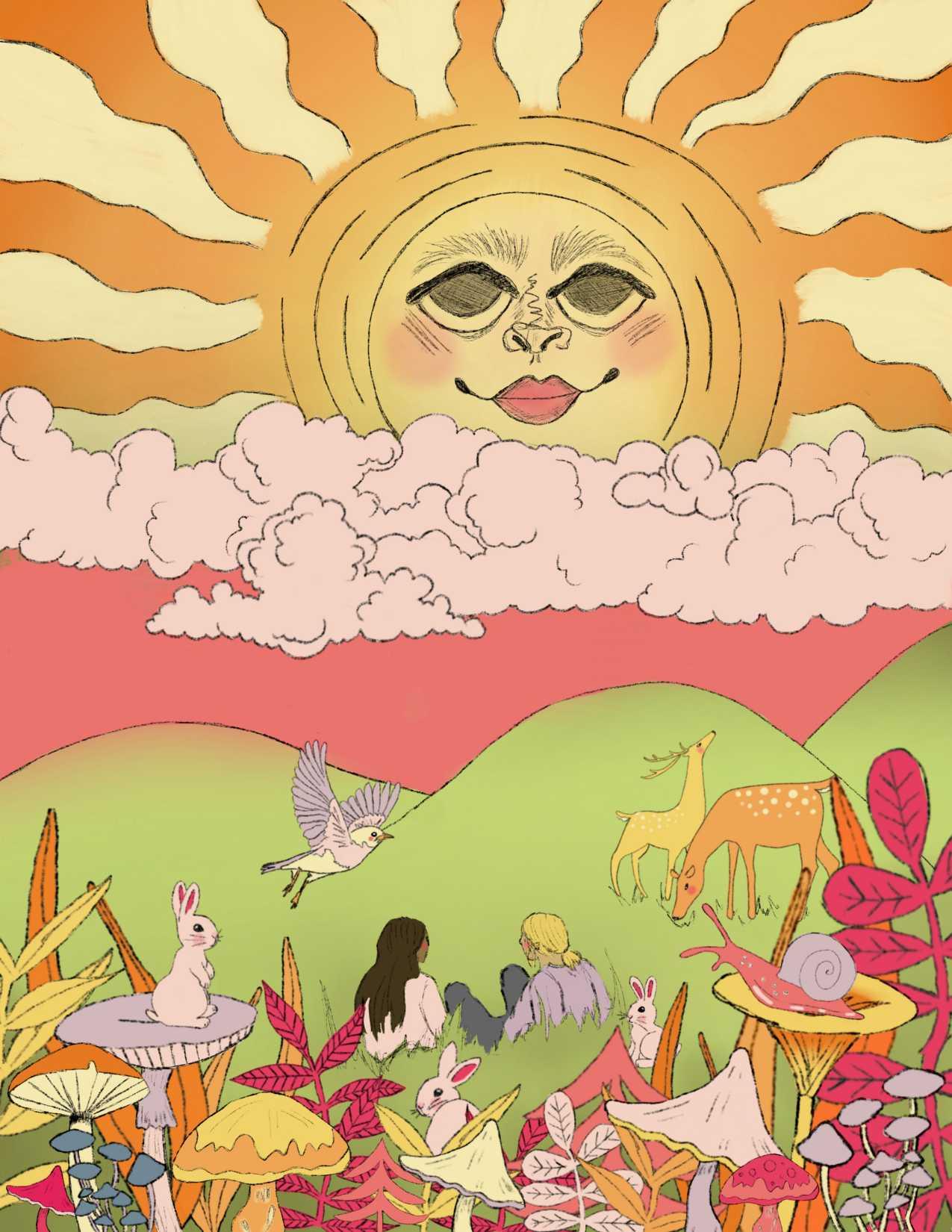








As written in the second chapter of Genesis, God took a rib from Adam, the first man, and from it fashioned Eve, the first woman, to serve as his companion. We propose a different origin story, in which no one is merely a piece of flesh, secondthought, servile, or spare.
Our 23X edition theme is Joy—a long-awaited choice for many of our members. In past editions, our themes have unfolded into unfiltered expressions of emotions, frustrations, and activism, yielding complex pieces and intricate covers. As we’ve come to know in this edition, joy— a deceptively simple word— is no less difficult to pinpoint. In this edition, you’ll find that joy takes on many dimensions. Queer joy, autistic joy, Black joy, musical joy, fat joy, killjoy—All these iterations of joy are a celebration of who we are and who we want to be.
Political activism is important but exhausting work. In light of the challenges inherent to our daily existences, how do we cope? How do we find joy in the everyday; how do we deliver hope for the world we want to live in? With the pieces in this edition, we hope to illuminate the work and communities that have brought us joy in the past few months, and through this, we intend to shed light on the ways we have envisioned and embodied the world we want to inhabit someday through our art and organizing.
You, the reader, have pulled back the curtain. Light pours from our hearts into your own. We’d like to ask you: What brings you joy? What sparks light within you? What constitutes the world you want to live in? Flip through these pages; find your light in the words of our authors.
Feel our joy.
-23x writing leads
OThe Spare Rib newspaper was first published in 1992 to highlight women’s accomplishments and persisting problems in the two decades following co-education at Dartmouth. Unfortunately, the paper’s editorial staff and approach represented a narrow, one-dimensional slice of feminism, and the paper went out of print after only a few years. Twentyfive years later, our goal reflects a movement that has evolved considerably since 1995. We are re-establishing Spare Rib to discuss struggles, achievements, and history of people and places beyond the center, hindered (but not constrained) by racism, classism, sexism and further means of oppression, through analysis, humor, and critique. Our struggles deserve recognition, our perspectives deserve to be voiced, and our strengths deserve to be celebrated.
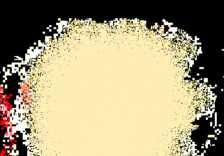

YY
Disclaimer: The views and opinions expressed in Spare Rib are those of individual authors wholly complete or correct information, nor intended

In accordance with Spare Rib’s values and mission, we want to bring attention to the land on which we stand, its history, and its original peoples. More than a land acknowledgement, this is a statement against a historical injustice. This is a historical demand and a material necessity that has been brewing for over five centuries. Dartmouth College is a settler-colonial, patriarchal, bourgeois institution, founded on the eve of the American revolution. It is thus profoundly entangled with the settler-colonial project. This institution stands on unceded, continually-occupied Abenaki territory and within the wider Turtle Island, lands currently under the violent, fascistic military occupation of the Euro-American settler regime. Indigenous people, both here and throughout the Earth, have been living in a postapocalyptic winter for 500 years. These lands have seen genocide, warfare, and plagues, which have decimated most of its original inhabitants. They have seen treaties ignored and broken, cultures and languages forcibly erased, and entire populations displaced. Indigenous peoples remain here, standing proud and resolute, in love, community, and joy, awaiting the new dawn to come.

Now more than ever, Spare Rib assumes the historical duty to stand in solidarity and dedicate ourselves to a genuine end of colonial injustice. Spare Rib stands for a return of the land, people’s government, and Indigenous self-determination. This statement is a new beginning for our efforts for Indigenous justice and autonomy — this is not the end. As we move forward, Spare Rib devotes ourselves to a future of collective liberation for all oppressed peoples.
The Spare Rib newspaper was first published in 1992 to highlight women’s accomplishments and persisting problems in the two decades following co-education at Dartmouth. Unfortunately, the paper’s editorial staff and approach represented a narrow, one-dimensional slice of feminism, and the paper went out of print after only a few years. Twentyfive years later, our goal reflects a movement that has evolved considerably since 1995. We are re-establishing Spare Rib to discuss struggles, achievements, and history of people and places beyond the center, hindered (but not constrained) by racism, classism, sexism and further means of oppression, through analysis, humor, and critique. Our struggles deserve recognition, our perspectives deserve to be voiced, and our strengths deserve to be celebrated.

Spare Rib was created by students at Dartmouth College, a school built on unceded Abenaki land that, to this day, prospers off of Indigenous trauma. Settler-colonial exploitation is ongoing, complex, and damaging to all, and Spare Rib aims to acknowledge the privileges and exploitation we take part in within society—devoting ourselves to honoring Indigenous peoples and allies around the world that fought and continue to fight for a more equitable and inclusive future. We will continue to voice our support and encourage others to educate themselves and learn about Indigenous issues and identities. (edited from 22s edition)
authors and not necessarily reflective of the zine, writers, or staff as a whole, nor represented as intended to disparage any group or individual.

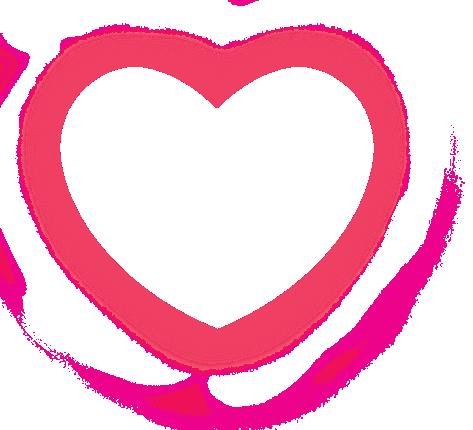

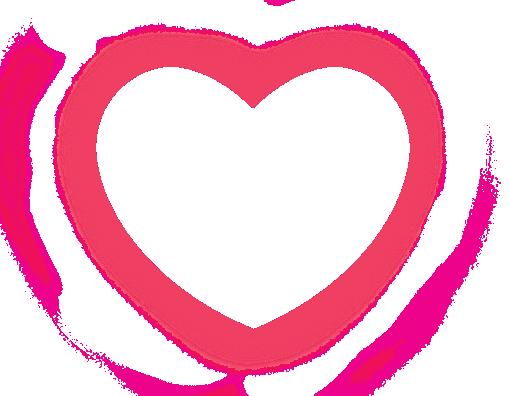


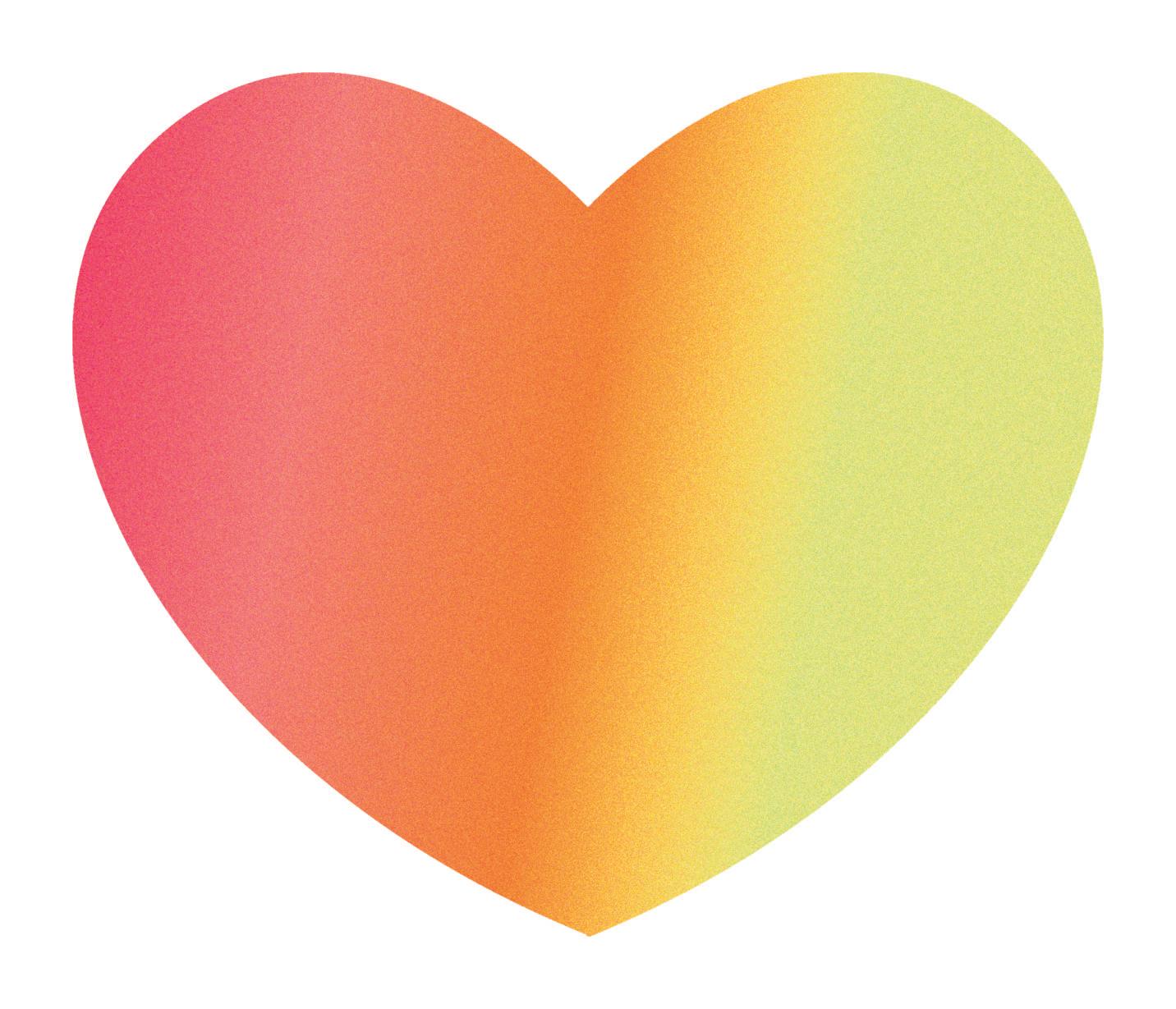
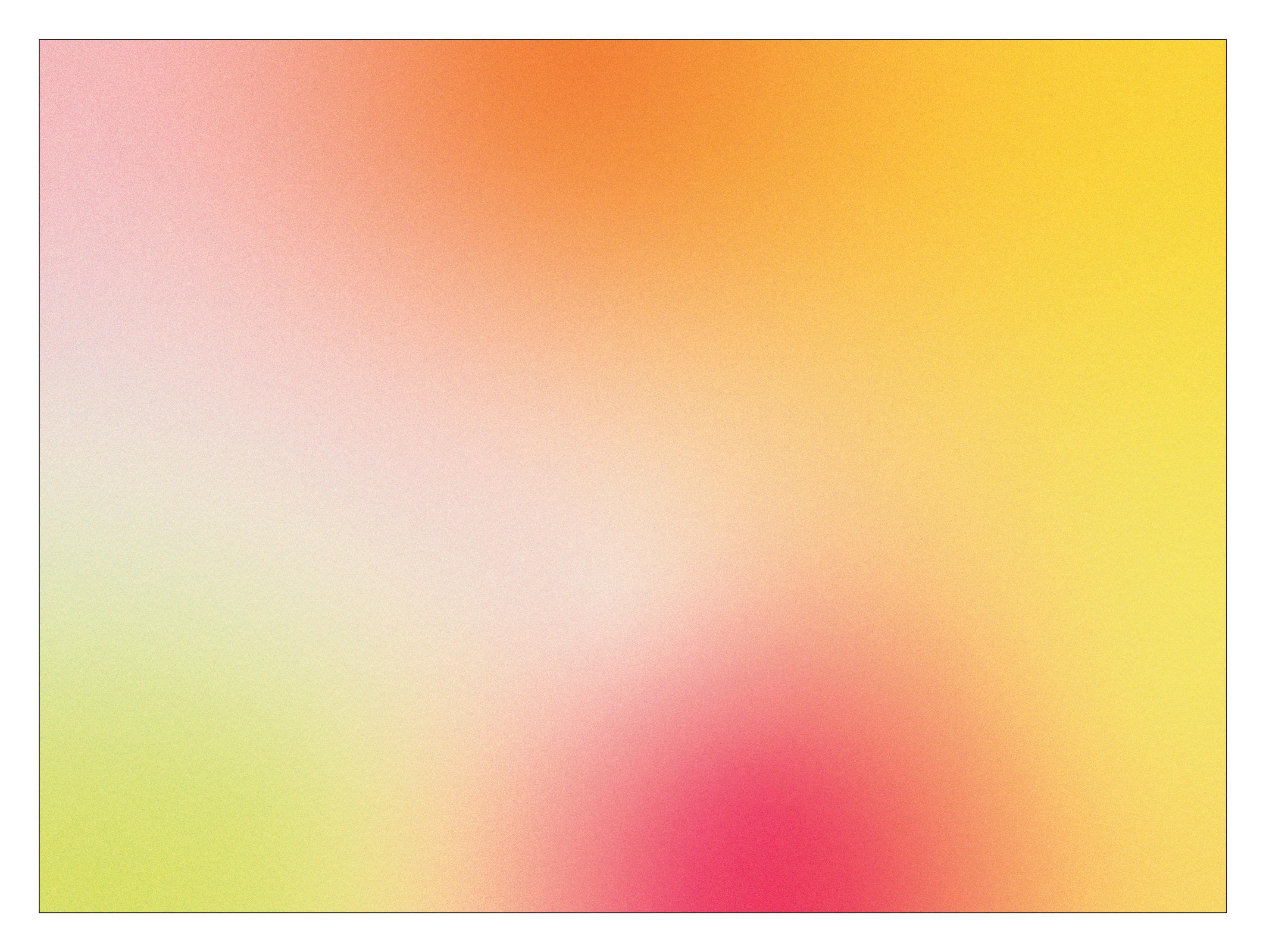
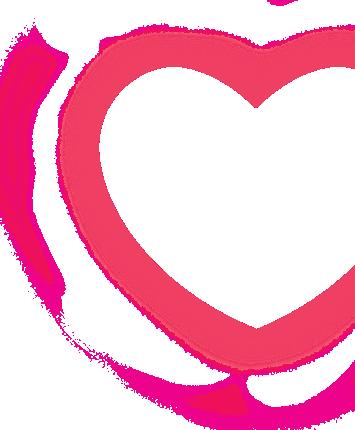
Author: Ella

Author: Joyce Li Designer: Caty Brown Artist: Sarah Berman
Author:
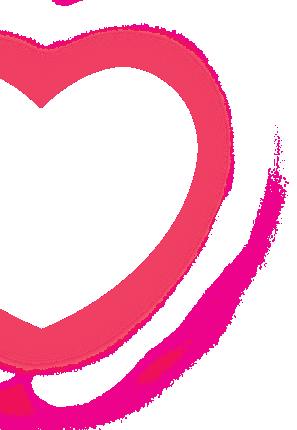

By: Tiffany Chang Art by: YaYing Yu Design by: Ella Grim

is spring, I decided to spend my leave term on campus doing research to prepare for my senior thesis. To be honest, my real motivations for staying on campus were to spend more time with my graduating friends and continue living at Chanty (our senior apartment). Embarking on a new passion project while preparing to say goodbye to seeing my friends every day has been such a bittersweet experience. At the same time, not taking classes this term has given me a lot of time to re ect on how grateful I am to have met friends who have become like family here.
We’ve all been through a lot these past few years, and re ecting on what to make of everything I’ve ever wondered or been worried about, the next direction for my work has organically coalesced around the theme of survival. Pursuing survival means something di erent to everyone, and that’s what makes it so beautiful: a shared need that we can build into shared communities. No matter where this life takes us, I only wish the best for everyone in the class of 2023. I hope that someday, we’ll all discover our personal visions of survival which lead us towards living and loving well.


In what ways does Jong Yak-Yong’s legacy enact a teleiopoesis
(Teleiopoesis being the process by which literature creates new worlds across the gaps of vast spatial and temporal distances).

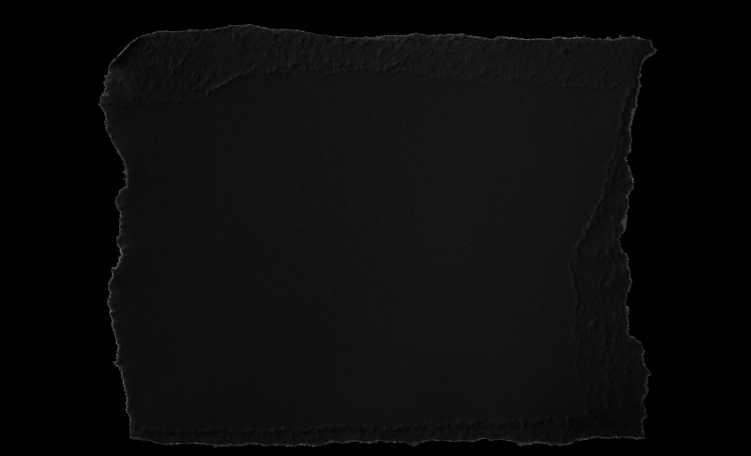
Could he have anticipated my study of him, or that my study of him would be displaced onto reviving the voice of a enslaved woman 비녀 in his household, and Catholicism’s connections to women like Franny Choi (with a detour via the work of Alexis Pauline Gumbs) or eresa Hak Kyung Cha? at his legacy would be housed where the archives of eresa’s work are housed? What would my own genealogical record reveal, or would it be erased in its entirety?

to another applies well to the spread of Catholicism in Korea, in which Matteo Ricci’s ideas, translated into Chinese, were “copied” into Korean Neo-Confucian political debates. I also think that the idea of literature being “what escapes the system; you cannot speed read it” takes on a literal signi cance given penalties for importing Western literature and religious persecution. Spivak’s most convincing application of her methodology was pointing out the inde niteness of Virginia Woolf’s acts of creating meaning in A Room of One’s Own. I also liked how she pointed out modernity and traditions co-existing (with traditions outlasting dead technology) in one of the novels she used as a case study.
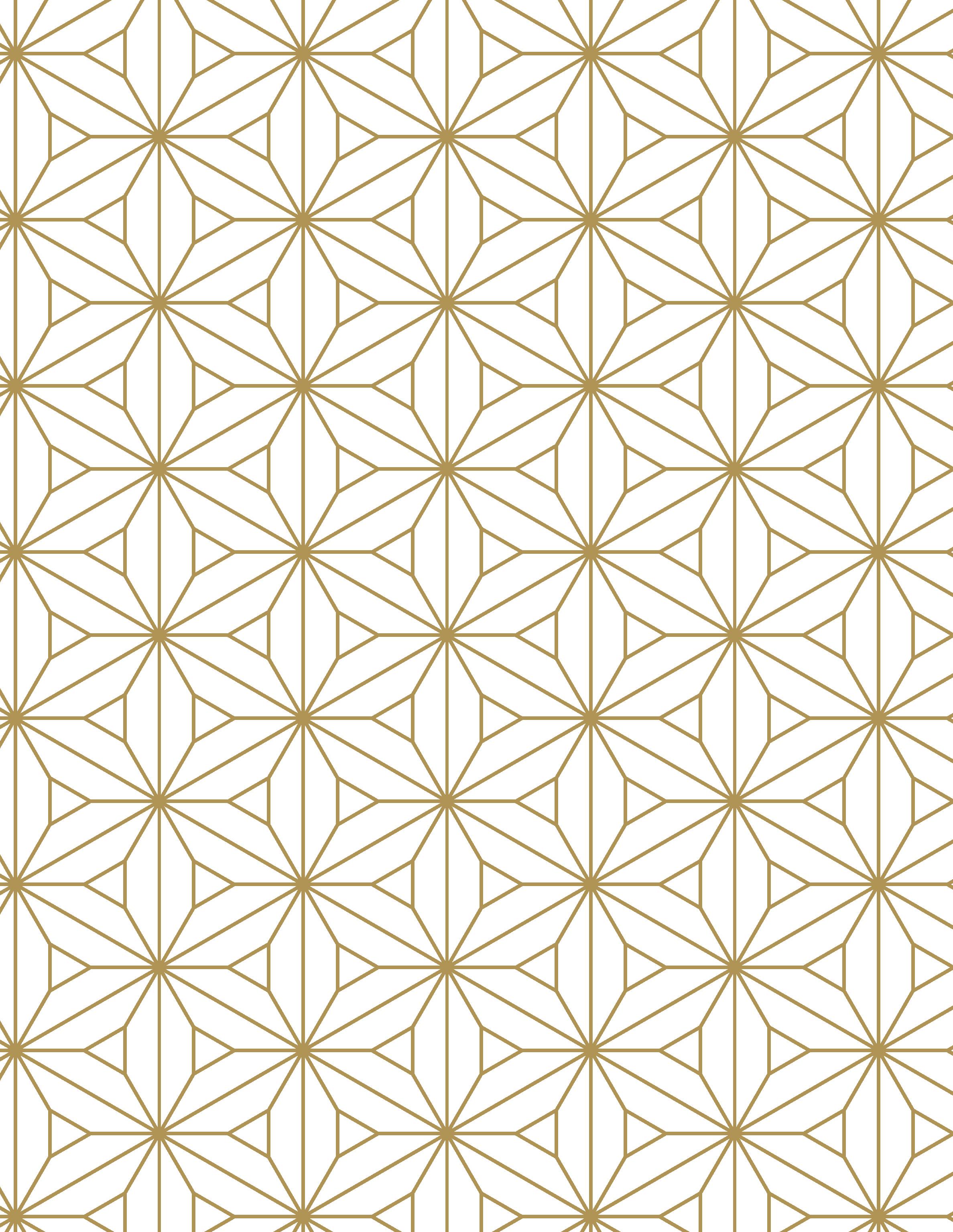


is brings me back to Park Dae Sung’s statement that he found the modern in the ancient. e deconstructive strategy that Cawley applies to both Ricci and Tasan’s work is very compelling to me. Both of them sought to evade the polarization of political discourse around Catholicism by searching for origins, histories that seemed beyond critique because they were already part of e double meanings in Tasan’s work and the need for secrecy as a condition of his creation makes me think more broadly about what secrets the past keeps from us.


e idea of a distinction between a moral God and a creator God is fascinating. I wonder how this connects to the role of ritual in both Neo-Confucianism and Catholicism. e burning of ancestor tablets is the most obvious, but Yagyong also cared about music as a practical tool to cultivate moral behavior. Creation is morality, creation is godly. If Literature is what escapes the system, to quote Spivak, then how does this idea of a creator God and the absent signi er of Jesus as the practical bridge between God as a metaphysical concept and God as embodied in human actions interact? More importantly to me, how does that create the space for art of people who did not have access to Catholic texts, who keep Catholicism alive in other ways? Might we then read ritual as text if the creator God draws no distinctions between mediums?


If Spivak were to frame this in terms of Woolf, it would be asking what of Woolf’s writing creates the conditions by which teleiopoesis of her work can occur, how is that di erent from other writings in the strictly Neo-Confucian tradition, or from other traditions, if it is, really? Remember my initial proposal on how so many of the signatories to the Korean Declaration of Independence were secret Korean Catholics.


I know I’m supposed to narrow down my research questions. I guess my research question is, if literature is what escapes, then what escaped Jong Yagyong and can we see it in the work of lapsed Catholics like Franny Choi, eresa Hak Kyung Cha, and others? What escapes the text, and how does it get transubstantiated back into literature when the household registers have been burned, both for the nobi (for whom it never existed) and for the yangban? How did Yagyong create the conditions for that slippage, as the sole survivor of the purges from his family? e sole escapee? Is it really fugitive, if he’s a yangban?
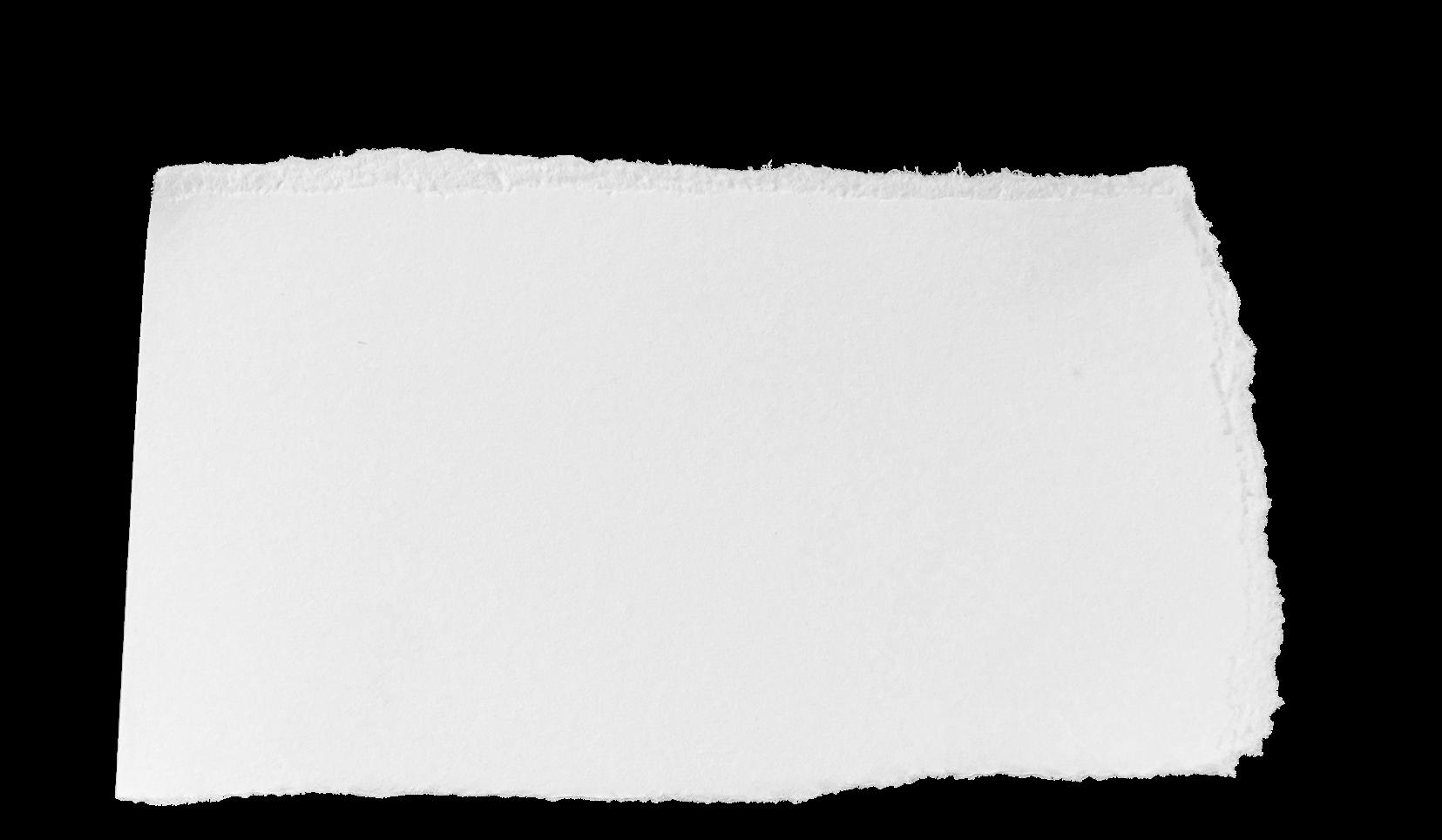


All this is making me curious about my own family genealogy.

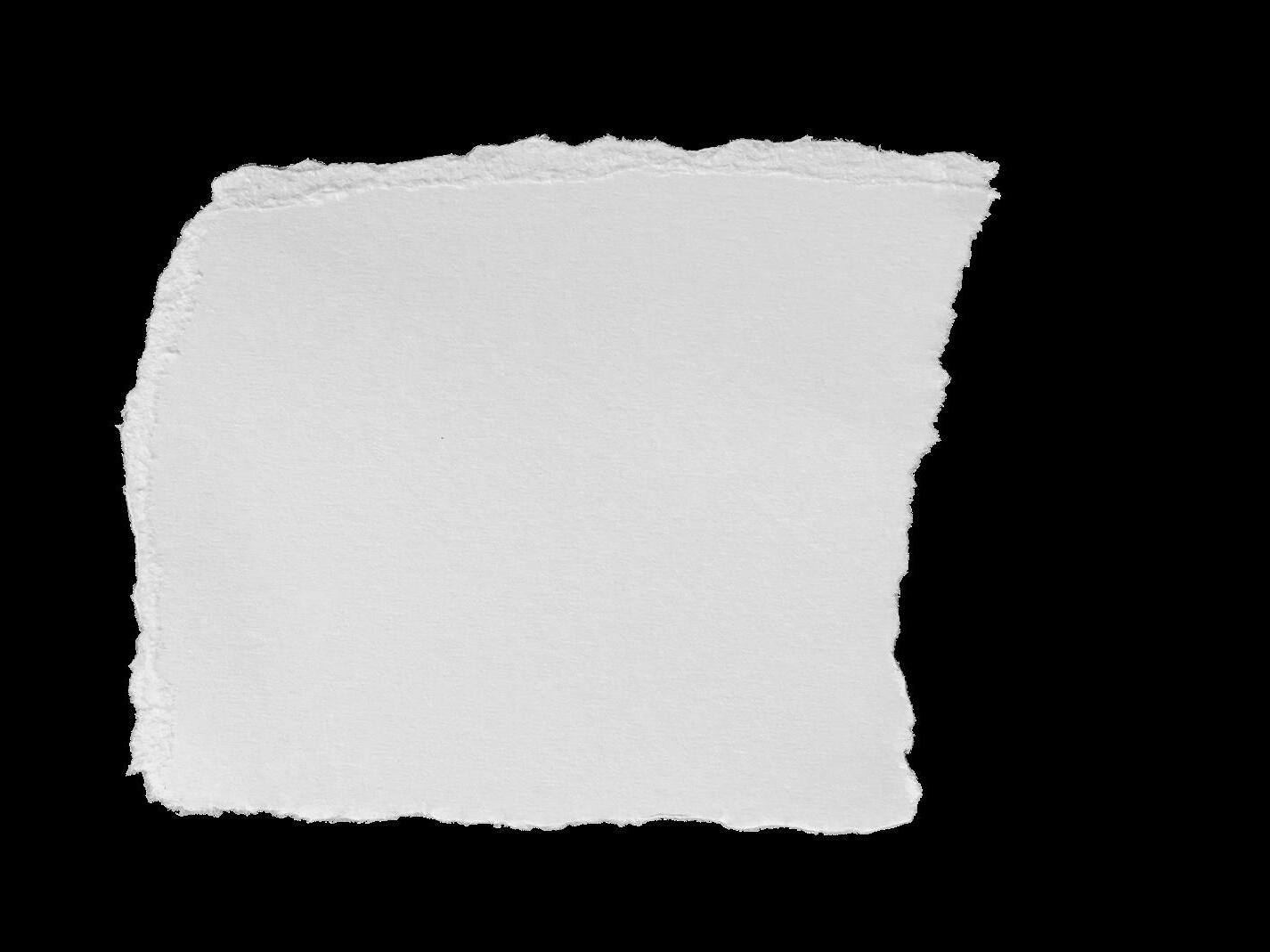


I looked through the Ricci Institute’s library catalogue today and continue to feel overwhelmed with everything that exists out there about the topic of Korean Catholicism. I feel an urgency to narrow down my research topic to feel like I’m making progress, and the only thing that’s sticking in my head is Professor Jung’s research on the 비녀. People like her are so hard to re-search from a literary perspective because they rarely author literature that’s preserved. I’ve been wracking my brain to think of what it means for com-parative literature to no longer solely concern itself with literature, as the 1993 Bernhard (?) report by the ACLA concluded. Today, reading Graphs, Trees, & Maps, I was struck by the structure of an evolutionary tree to discuss shifts in literature. e process of in nite di erentiation becomes consolidated through varying rates of survival. I wonder, in the context of martyrdom and martyrs’ literature, if this process applies to the survivors, too. In a very literal sense, much of the Jung family was martyred. Jung Yakyong, who wasn’t, wrote the majority of his works in exile (like Ovid). What does his survivorship reveal? Can a model of martyrdom be applied to the preservation of works from people with marginalized identities, and how would that be represented in the literature, its very survival planted in infertile soil? What does literary martyrdom look like for the voiceless?

For the record, I’m not Christian. But my grandparents are very devout Christians from one of the southernmost parts of Korea (Mokpo), in the countryside. I wonder if curiosity about




I’m realizing that I have a very speci c vision of literature that doesn’t necessarily include the legalistic analysis of yangban commentaries on Confucius. I think literature is special because of its relationship to poetics: the will to remake the world through one’s imagination. Maybe I should begin to look at Yakyong’s poetry and letters as well as his formal political statements. Did such a statement exist for him? Ricci seems to be the one enacting his teleiopoesis, but Yakyong is the one who is creating something new entirely that I think Korean literature is still grappling with in terms of its relationship to English. I am still stuck on what my research topic even is or how to narrow it down without identifying core primary sources. Maybe this is my next task.

I wrote in my re ection on e Vegetarian that I appreciate its use of the domestic family as its unit of analysis of Korean politics. Maybe I should do the same with the founders of the Catholic Church. I can make a map of their works and compare that with representations of vernacular and women’s literature. I can see which works I can trace a legacy of into the modern day and unsettle the tree diagram with modern literature. So much of early Catholics’ lives were concerned with their survival. Survival was built into the conditions of their literary production. For some subjectivities, I’ll argue that they performed their stories long before they were preserved. So much of literary is a preservation issue. ink of this scenario: someone performing a story and someone else writes it down. Who is the author of the story?





Other things in my mind: the idea of the God as a Creator God (birth of poetics from analytics), how is the act of smuggling knowledge an act of ritual, contrast trees with family history archival practices and family registers and gendered erasures, see how the linear logic of suc-cession/inheritance falls apart for the people (nobi) who are traded as property between houses (circularity of ownership and its accumulation of capital via exploitation). How strange, that there exists no distinc-tion between family and household, and that preserving the fates of the owned in any record exists alongside the turbulent fortunes of those whose power once must have seemed unimpeachable.
I’m realizing what my next step needs to be – instead of continuing to be so overwhelmed with secondary sources, I need to begin constructing a primary source bibliography that will allow me to begin applying these methods of deconstruction and teleiopoesis in earnest. Start with the family tree provided in Jong Yak-Jong’s rst Korean Catechism and make a bibliography of the most nota ble primary sources each person on the list has created, along with intellectual in uences and a liations. In many ways, what people had in common was the necessity to hide: what they were doing, who they were, their discontent with the system, etc. How do new forms of expression arise to accommodate double meanings and free expression of possibilities unrecognized by the current para digm? is is where I can explode form, because literature borrows from other art forms such as satire and vernacular works as well to expand the horizons of the possible in writing, as Spivak says, why are reading and writing often considered the only allegories for learning and knowing the world? Closeted expression is still expression. Expression that holds in tension both the desire to remain alive and the desire to create a new world: an ethics of rev olution that is far from suicidal, and is rather a cry for a survival more vibrant than we could have ever imagined.



My project is a passion project about survival strategies: what we can learn from past survival strategies so we can develop better ones.
ere is no survival strategy formulated without the looming threat of loss, devastation, and death; there is no death, devastation, or loss that leaves no survivors.
Survival is ever-present even when death looms: sometimes, death is the only survival that truly matters.
Edelman writes about the death drive, but I’m far more interested in the survival drive.
In the face of persecution, colonization, and bodily violation, how can we excavate survival strategies that enable us to nd hope and love in our shared existence?
How can literature help us answer these questions?
Literature is the God that creates from a distance (some would call it teleiopoesis).
Literature is what escapes the system.
What escapes, and what is the system?
We’re escaping, and the system is everywhere.
We’re escaping, and the system is our family, our ancestors, our everything everywhere all at once!
Are you excited?
Yes – I want to meet your god.
My research on the literature of early Korean Catholics reveals a literature of constant experimentation with the highest stakes of life and death.
My consumption of Korean American diaspora literature reveals a literature of constant experimentation with the highest stakes of life and death.
My creation will reveal new building blocks for transmitting the survival strategies of the past, present, and future in the words we write.
For survival is timeless –a generative process that never ends as long as we keep learning, together.
5.

By: anonymous Artby: anonymous Designby: anonymous

H-ow Loll\,g etv-e we wet�t�V\,g tvtel/\,?
Wvto etv-e we wet�t�V\,g fov-? Wlttett �f 11\,0boolkj slttows up? Av-e wejust gol/\,11\,Ct stetkj lttev-e fov-evev-?

3.
"B.ut �ou opell\,eol tltte bo,x of posstbtLtttes, oltolll\,'t �ou?
Tuett's wltt� �ou'v-e sttttll\,g wttltt V\A,e ett tlttts vev-� V\A,OV\A,ell\,t.
1..
H-et, WvtCftCfYe tjOUWCf�t�V\,gfor-?

4.
Tuett'.s tv-ue. AV\,ol I'LL becoVvt,e OV\,e of tlttepo.s.s[b[L[t[e.s, so w[LL �ou. ti1[.s [.s tltle buffev- zoV\,e fv-oV\A, OV\,e po.s.s[b[L[t� to etV\,otlttev-, etV\,ol we'v-e botltl [V\, et tv-etV\,.s[t[oV\,etL .stette.
2.
WtA�t�V\,gfor- soV\A.,eoV\,e to r-oLL tvie ol�ce. rt tur-V\,S outtviCftwe olo V\,Ot get tocvioosewvi�cvtwor-Lol toL�ve �V\,. I'VI.A., V\A.,er-eLt, tAV\, obser-Ver-.


isut bect1use , ,
eveYt)tvu,V\.,g t..s
V\A.-et1V\.,LV\.,gLess, tvte
ver-tJ
V\A.-DV\A.-eV\.,t of 'beLV\.,g t1LLve'
becoV\A.-es
LV\.,cr-e�LbLtJ

After- I
�Lst1-p-pet1r- fr-oV\A.
tl1Ls wor-L�, V\A.-t) wLLL stLLL LLves

Those L�vtV\,g t¾DV\A.ell\,ts tnett oV\-Lt, beLoll\,g to w,�seLf


While studying abroad in Lisbon, I found myself drawn to bookstores and libraries — my refuge from a language that left my head spinning. As I leafed through each book, my brain mechanically translated Portuguese to Spanish and Spanish to English. I whispered aloud to myself, stumbling over syllables, my brain desperately endeavoring to keep up with my lips. Romances, mysteries, and even a translation of F.Scott Fitzgerald’s Gatsby came into hazy view. Portuguese was a new, exciting, and often frustrating puzzle.
While studying abroad in Lisbon, I found myself drawn to bookstores and libraries — my refuge from a language that left my head spinning. As I leafed through each book, my brain mechanically translated Portuguese to Spanish and Spanish to English. I whispered aloud to myself, stumbling over syllables, my brain desperately endeavoring to keep up with my lips. Romances, mysteries, and even a translation of F. Scott Fitzgerald’s Gatsby came into hazy view. Portuguese was a new, exciting, and often frustrating puzzle.
My hands landed on Pablo Neruda’s “Poemas de Amor,” da’s “Poemas de Amor,” a Portuguese translation of the great Chilean’s work. It fell open to El Insecto, and I finally let go. No longer did I hold myself to a rigid translation, for poetry was never meant to be strict. His poetry is of tender love, of emotion,
My hands landed on Pablo Neruda’s “Poemas de Amor,” da’s “Poemas de Amor,” a Portuguese translation of the great Chilean’s work. It fell open to El Insecto, and I finally let go. No longer did I hold myself to a rigid translation, for poetry was never meant to be strict. His poetry is of tender love, of emotion,
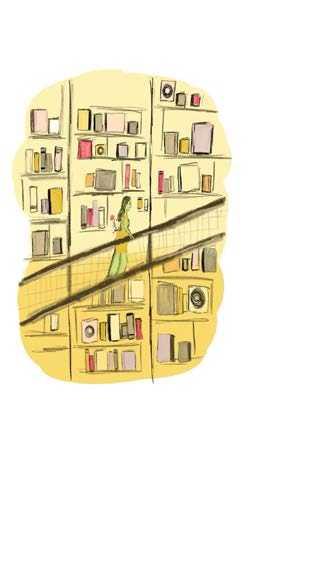
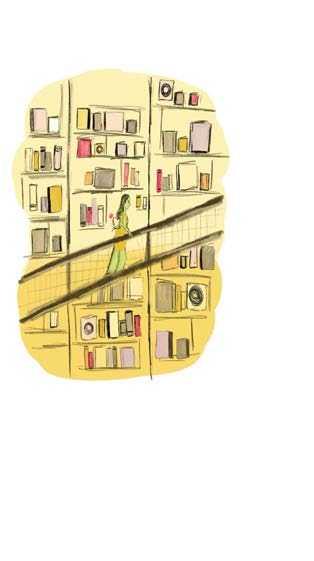
filled with longing and desire. And I saw it all. I was Neruda, an insect surrounded by the great big world. A rose towered over me, its petals crinkling with age. A fire smoldered nearby, and I made the journey down my lover’s body. with such it was a with the cradled. Tainted Insecto the body his filth. to dust. lungs as veil had face with clothed language separate they were God – I read his felt what thought. Before,
filled with longing and desire. I saw it all. I was Neruda, an insect surrounded by the great big world. A rose towered over me, its petals crinkling with age. A fire smoldered nearby, and I made the journey down my lover’s body.


I wanted to read it with the middle schoolers I teach Spanish to, to go back in time and whisper it aloud once more in that tiny, Portuguese bookstore. Now I can’t even pick up that little blue book of poems. I guess some stories don’t get a happy ending. Sometimes there is

such reverence. Who told me fragile vase to be handled the utmost care. A baby to be The betrayal felt personal. with the image of his sin, El was now a parasite, infecting body of an innocent maid with filth. The rose overhead shriveled
The fire’s smoke filled my I choked on the truth. The been lifted and I was face to with a beguiling monster who himself in achingly beautiful language and deceit. How could I the art from the artist when were so intimately intertwined? wasn’t just reading a story poetry. I saw what he saw, what he felt, thought what he thought. It all seemed like a cruel
This man, who spoke of love with such reverence. Who told me it was a fragile vase to be handled with the utmost care. A baby to be cradled. The betrayal felt personal. Tainted with the image of his sin, El Insecto was now a parasite, infecting the body of an innocent maid with his filth. The rose overhead shriveled to dust. The fire’s smoke filled my lungs as I choked on the truth. The veil had been lifted and I was face to face with a beguiling monster who clothed himself in achingly beautiful language and deceit. How could I separate the art from the artist when they were so intimately intertwined? God – I wasn’t just reading a story he thought up for someone.
I was Pablo Neruda when I read his poetry. I saw what he saw, felt what he felt, thought what he thought. It all seemed like a cruel joke.
I wanted to read it with the middle schoolers I teach Spanish to, to go back in time and whisper it aloud once more in that tiny, Portuguese bookstore. Now I can’t even pick up that little blue book of poems. I guess some stories don’t get a happy ending. Sometimes there is only heartbreak. To let love overwhelm my soul and bring me to my knees. And to cherish it all because es tan corto el amor, y es tan largo el olvido - love is so short, forgetting is so long.


To let love overwhelm my soul and bring me to my knees. And to cherish it all because es tan corto el amor, y es tan largo el olvido - love is so short, forgetting is so long. And insect world. petals smoldered journey
Before, I had wanted to shout

Before, I had wanted to shout his poetry from the rooftops.


by: Diana Tapia art & design by: Milanne Berg
Content Warming: depression, anxiety, ED, body dysmorphia, mentions of self harm, heartbreak

When the good days return you think,
I ’m all better now. Everything is going to be fine.
And in that moment of pure, unfiltered joy, you decide that you’ll chase happiness until your very last breath. But when the high comes crashing down and the illusion shatters, you’re met with a paradox: the more you chase it, the further it strays from you.
Dark days become dark weeks and soon you find yourself wondering if maybe the world was always so dim. But a good day comes around, and you can’t believe that there was ever anything wrong with you. You cling to that joy like a crying child holds on to its mother, hoping her comforting touch lasts forever. But deep down, you know the darkness is never far. It is always there, watching. And somewhere along the line, dark weeks become dark months, and the good days stop coming altogether.
There comes a point when you can’t quite recall why you’re sad in the first place. Still, you get up every day at 7 AM to cover the signs of a teary night with a thick layer of makeup.
You go to class and even though you study the material until your eyelids give out every night, you feel small and out of place, so you sink into your chair. You dig your necklace deep into your finger because you’ve learned to prefer the feeling of a sharp sting to the anxiety that’s found a permanent home in your chest.

Lunch comes around and you blow off your friends because you didn’t quite like what you saw in the mirror that morning. You tell yourself that you’ll eat a big dinner, but your assignments pile up and you never get around to it. You find yourself reading Jeffrey Eugenides and Sylvia Plath because you’re an English major, and you should know their work! That’s what you tell yourself, but you know the real reason. In your free time, you write shitty poetry about how much you hate your body and you wonder if you’ll ever make it as a writer.



I offer you this poem, My mind and body. Your eyes glisten with each stare, Your reflection, The one who stares back at you, Watches as you eye every unwelcome curve, Watches as you feel every dimple, Every mark, Watches as you pull and tug at every unruly curl, Watches as your hands get lost in every fold and roll, And when you look back at her, She suddenly feels so bare, So exposed, So hurt, So unwanted.
I offer you this poem, My mind and body,
To show you that your supple face house warm cheeks and soft skin,
To show you the beauty in every stretch mark,
To show you the strength in your gaze,

To show you that you are beautiful. Take it from me, For I am you, And I wish I could love you as you hate me.
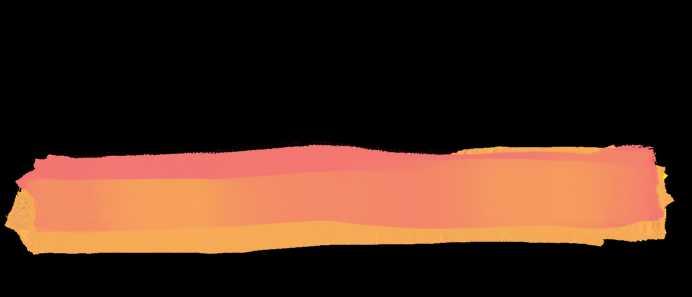


You’re swamped with homework, but your mind keeps wandering to the man who broke your heart with his indifference. When it comes up, you laugh and tell your friends you’re over that guy, the one you believed was the one, but even now, you cry yourself to sleep every night wondering if maybe he didn’t want you because you weren’t good enough or pretty enough or skinny enough. You finally gather the courage to ask him, and you know it’s really over now. You drink to forget him and fail every time, but you’d rather drown in alcohol than be alone with your sober thoughts. Deep down, the damage is done and you doubt you’ll ever feel that way about anyone ever again.
So you decide to give up on love, and you make friends with the numbness.

You go weeks without calling home because your mom can read you like a book and you don’t feel like explaining to your family that Dartmouth is just as prestigious as Harvard for the umpteenth time. When you do call home, you tell them that you miss them, but deep down you’re thinking about how they’re the reason you went away in the first place.
You buy self-help books, but you never get around to reading them because they’re for people who are actually struggling, and you? You’re just going through a rough patch, and you have nothing to worry about! Your friends come to you when they need someone to hear them out. You’re happy to do it because it distracts you from how miserable you are in the moment. You notice how your friends use men to get over other men, and sometimes you wonder if maybe you should do the same, too.
When you’re out with friends, you hate that no matter how much you try to change, you somehow make everything about you and you wonder if secretly everyone hates you for it. They tell you it’s fine, but you feel like a burden anyway, so you never let them know what you’re going through.
You suffer in silence. You’ve always preferred it that way anyway.
When you look up at the starry night sky, you remem ber how you’ve wished away two shooting stars on him. Another one comes around, and you wonder if you should hate him for the void he left in your chest, but you find yourself wishing him happiness instead. And finally, you realize,

The war is over. The rest is up to you.
And one day, just as you’ve made peace with the darkness, the Spring sun arrives, and its warm rays bring light to your world. There are good days again. Days where nothing good particularly happens, but smiles come easy and you are happy to be alive. You know this feeling is temporary, but you embrace it anyway. It is only when you embrace your pain that you learn to truly appreciate your joy.

This is healing . This is healing .


In your dreams, you’re always running, hoping to escape the hurt. You take long showers so your roommate doesn’t hear you crying in the next room. And you walk to Occom Pond at night, where you can be alone with your unforgiving thoughts and self-hatred.

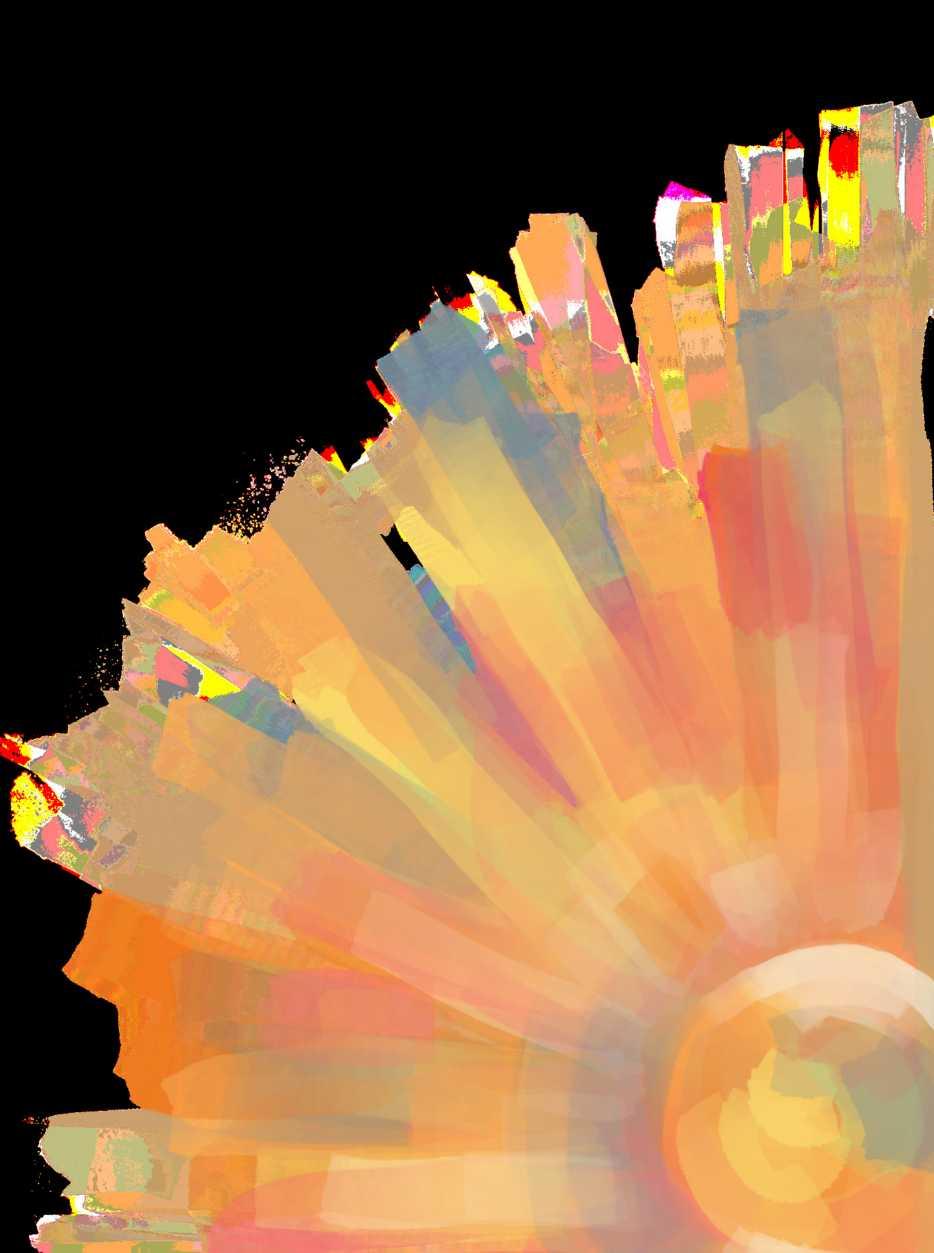
By: Ella Grim
Art by: Camille Yang
Design by: Raegan Boettcher

Lately, I’ve been feeling as if nothing I do has any weight.
Each day brings new disasters, some massive, others miniscule. My friends and I struggle through heartbreak, through death and other loss, with spiraling mental health, with the daily violences that come with situating ourselves within an institution that does not take adequate time to acknowledge our humanity, our identities, and our beautiful, living bodies. Bodies that exist in the fog between definitions. Bodies that carry hurt like a sickness that can’t be shaken.
For as long as I can remember, I have been a caregiver; my first reaction to crisis is ensuring safety, listening. Generating solutions. I simply no longer know how to help. The magnitude and frequency of these wounds seem beyond my ability to heal, or even provide temporary relief. I am tired of trying to fix everything. It is lonely. I am lonely.
In these moments of drifting, of weightlessness, I find myself turning to poetry.
Poetry is my sanctuary, my most personal and powerful form of healing. The page is where I go to process, to grieve, to problematize, to dissent, to rejoice, to declare love, to say everything I cannot figure out how to express with prose or speech. I will always write poems. Poetry is my joy. My survival. I know this with the conviction of a rainstorm.
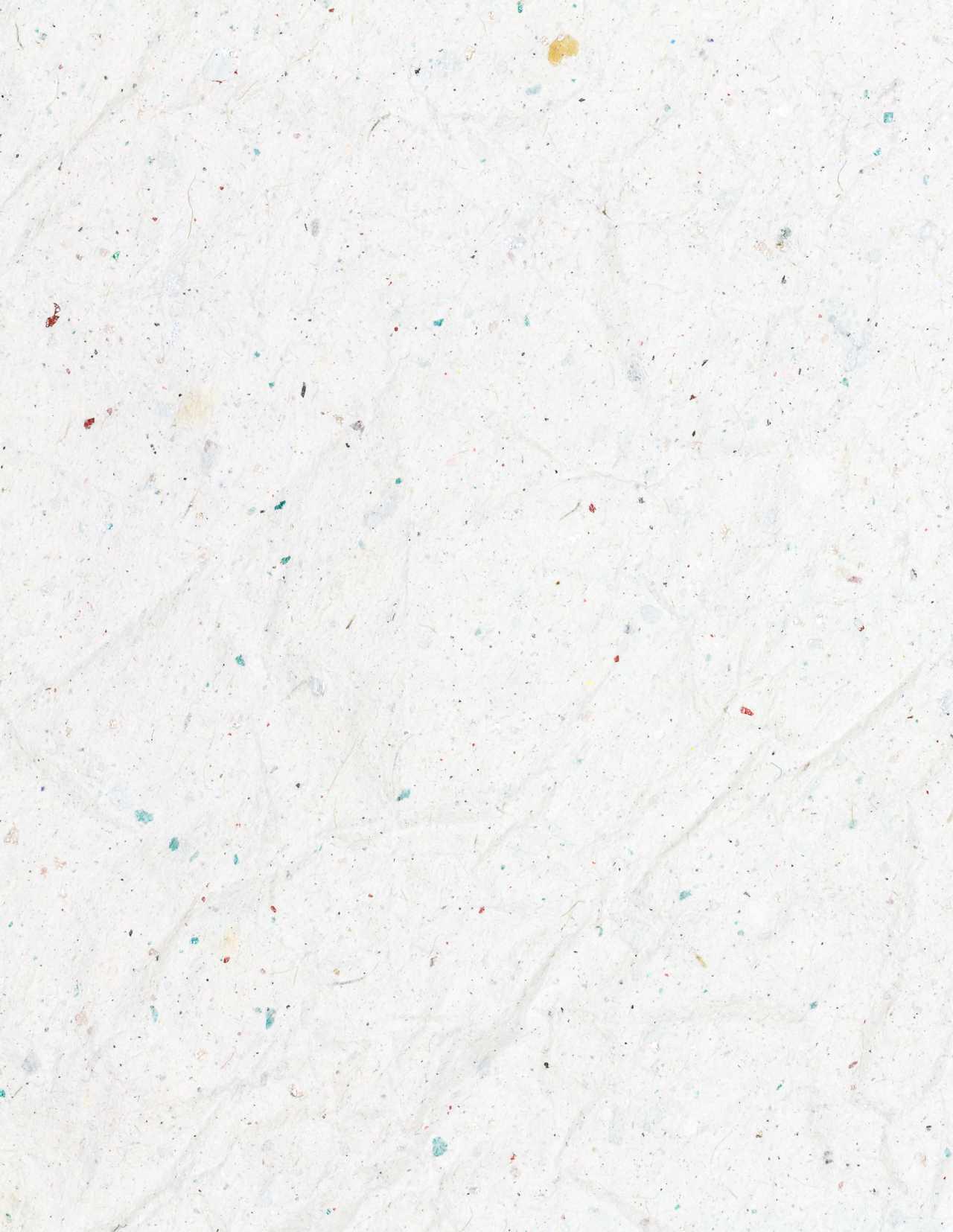
Poetry is not a luxury. It is a vital necessity of our existence. It forms the quality of the light within which we predicate our hopes and dreams toward survival and change, first made into language, then into idea, then into more tangible action.
-Audre Lorde
I am constantly questioning whether my impulse to write is enough. If, by pursuing a life of writing, I am simultaneously abandoning work that enacts real change, helps real people, has real value in the creation of a radically just, sustainable, and caring future. Art is often framed as soft activism, weightless in the face of real, tangible political states or conflicts. There is pressure to be serious: to write serious, analytical articles. To talk about serious issues. To take serious, radical, material actions. These “serious” things are, of course, critical and necessary to feminism and social justice movements. But so is poetry.
What about the poetic is coded as insignificant to serious political activism?
Perhaps in humanity’s current capitalist-patriarchaltechnocratic-carceral state of existence, the poetic insistence on emotion — on attention to an embodied praxis of feeling deeply the pain, joy, suffering, whimsy, etc. of our lives and the larger world that is insisted upon by poetry — must be framed as unserious, insignificant, and soft. Perhaps there is a desire to maim, to injure, to hate, without the interference of poetry’s insistence on the unveiling of that hurt. With willful ignorance towards the material pain caused on real individual bodies subject to a regime of emotionless, institutionalized inattention.
What happens when we reframe our understanding of the poetic as necessary to radical political transformation? When we open ourselves to the possibility of a mode of

What happens when we insist on an active praxis of serious joy? When we lean into the poetic, not as a crutch or an alternative, but as a fundamental, necesary condition for activist existence?
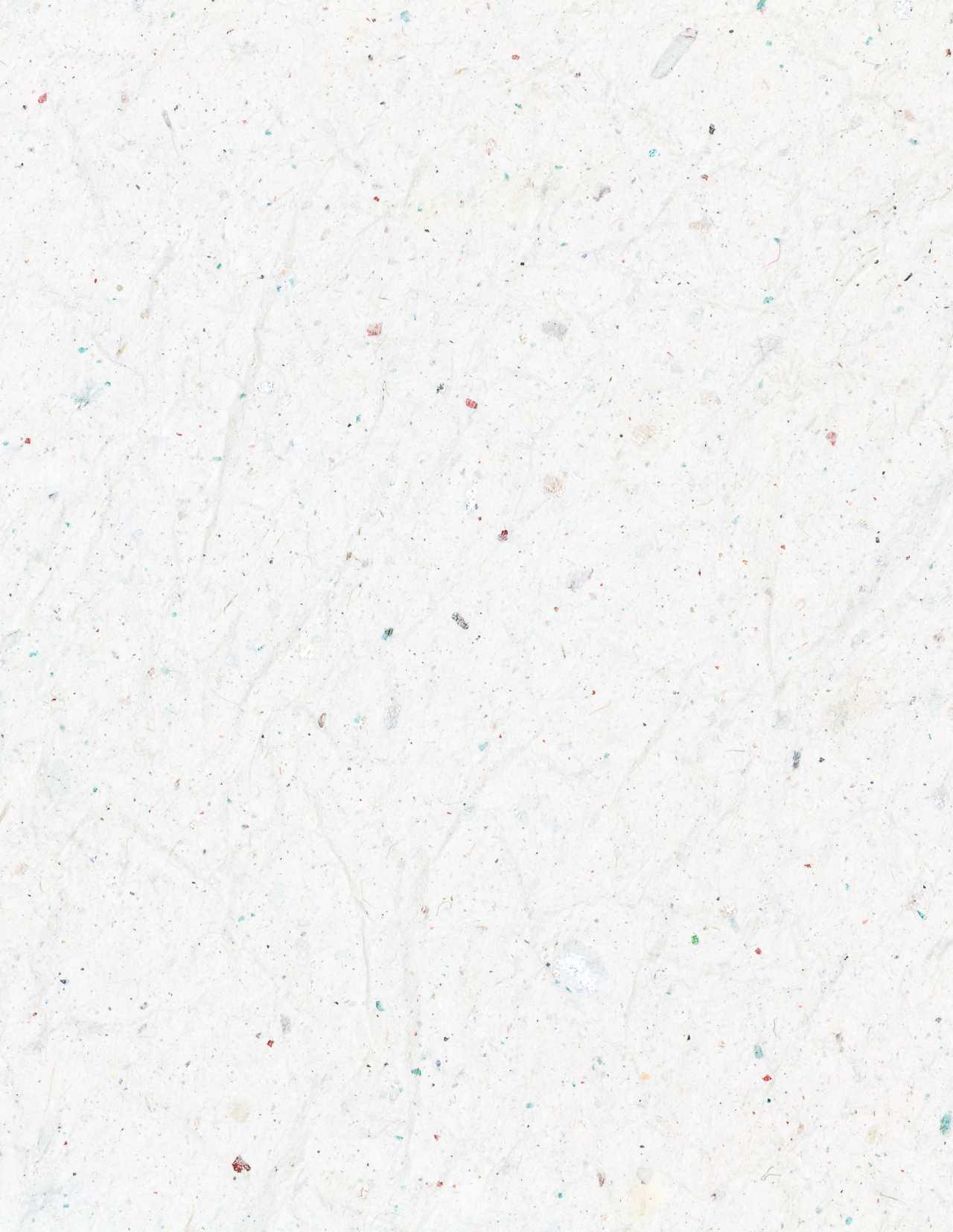
activism that both openly tackles the most serious issues of our time head and insists on taking the time to heal the physical, emotional, and psychological wounds that activist bodies sustain, through a constant regrounding in community via artistic practice? What happens serious joy? When we lean into the poetic, not as a crutch or an alternative, but as a fundamental, necessary condition for activist existence?
In this manifesto, I illuminate the links between poetry and feminist activism as they appear in my life, within Spare Rib, and in the larger world. This article is part personal narrative, part collective accounting, part annotated bibliography, part love song. It is, in a way, a justification of my urge to write. It is also a rejection of that need to justify — an attempt to reframe care work and creative labor as historically and currently fundamental to our politics, activism, and existence.
But little by little, as you left their voice behind, the stars began to burn through the sheets of clouds, and there was a new voice which you slowly recognized as your own, that kept you company as you strode deeper and deeper into the world
In the archive of my memory, I open the box labeled times poetry woke me up:
I sneak the thick red copy of Contemporary American Poetry off the grown-ups’ bookshelf when no one else is home. It is electric and heavy in my
hands. I realize I am not the only person in the world who plays with words.
I read Mary Oliver’s “The Journey” online while bored in 10th grade chemistry class. It tells me what I already know: I am the only person who can heal my wounds. I realize I am not the only person in the world who is trying to get out.
I lose the Poetry Out Loud state competition, but it does not matter because I am already 20 pages into the free book they gave the runners-up. Ada Limón, The Carrying. I am transformed by these pages, by the elegance of the language, the melding of body and land, emotion and pointed political critique. I realize in this moment that everything I want to accomplish can be done through poetry. I decide to be a poet.
I sit on the first ever Climate Emergency Poetry Zoom call during the height of the pandemic. I’m the only person under 40. I wait with building anxiety to share a poem. It is my first time reading my own work for an audience. I speak of rivers, of drought. When I finish, a woman sends me a chat message: “A lovely poem and you make a fantastic presentation in your reading. You’re in great company with Hirschfield and Orr. Hope you continue to write.” It’s electrifying. I realize I have the power to write things that resonate with others. I, too, can build mirrors with words and prompt reflections.

It is my first week of college. Serena and I sit on the ROBO steps licking dripping ice cream cones. Out of nowhere, she goes “So you’re queer right?” and it is euphoric. The next week, we bookclub Sappho, who writes, “We live the opposite daring.” I realize my desires stretch back for eons, and that I am not the first person to write about this.
Consuming art that validates our existence is one of the most profoundly joyful experiences in this world.
The first joy I found in poetry was the realization that I was not alone. It is terrible to feel alone, especially as a child, and there were several years of my adolescence where I truly thought no one would ever be able to grasp my thoughts, my loves, or my wonder. Those first, illicit, stolen poems I read started to slowly burn away at this fog. I heard voices. They echoed mine. I echoed theirs. They gave me a purpose. A goal: to read and write. A glimmer of hope that I would find a voice, claim it as my own, and be kept company by it, and by the voices of all the other poets who had found and claimed their voice long before I came into this brutal world.
When we realize we exist outside our bodies — or more accurately, that other bodies exist that look, think, or feel like us — we start to lose the fog of isolation. We wake to the network of humans we are connected to: by experience, by hope, by
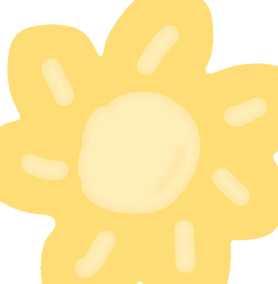

completely different.

Consuming art that validates our existence is one of the most profoundly joyful experiences in this world.
Poetry is a mirror. One of those big, twisty, fun-house-atthe-county-fair mirrors. A medium for reflecting our thinking, our dreaming, our schemes, our love, our hope, our existence. We exist. We write because we exist. We write, too, because we know that we have not always known that existence. We hope someday a stranger reads our poem, and thinks: Oh, I know that feeling. I, too, feel this. I, too, am this. I exist.
enough of can you see me, can you hear me, enough I am human, enough I am alone and I am desperate, enough of the animal saving me, enough of the high water, enough sorrow, enough of the air and its ease, I am asking you to touch me.

-Ada Limon, The End of Poetry
My inbox is full of messages, and because I am methodical, I read them
There are some I am indifferent about and some that bring stress. The sum total is a steady trickle of bad news, conference reports, brochures for events I will never attend — the messages are constant, like a drippy faucet.
On the rare occasion, though, I receive a poem.
Spare Rib has a poetry circle with 25 people, and we send our work to each other over email. This group was started before I matriculated, and has ebbed, flowed, and grown over the past two years. We revived it recently. Started sending poems on themes: Time. Instinct.
Poetry is, at its core, a communal, circular act.
In my classes, I’ve learned about
early English epic verse, like Beowulf, written down but likely sung or recited to audiences. I’ve learned about manuscript culture in the early modern period, about the circulation of poems through the courts and through the hands of poets and writers, who copied them down before passing them on. I’ve learned about Ginsburg and the Beat Poets, how together, they pushed the boundaries of language and built a counterculture poetics. I think of Ada Limón and Natalie Diaz, who spent almost a year writing letter-poems back and forth, building on each other’s images and responding to current events in each other’s lives and in the world around them. I think of Franny Choi, who visited Dartmouth’s campus in the early spring of 2023 and spoke of many things, among them her strong connections to other young, queer poets, like Danaz Smith (who, coincidentally, is the author of my current favorite poem, I’m Going Back to Minnesota Where Sadness Makes Sense). I think of my dear friend from high school, how we have sent each other poems back and forth each April for the past 5 years. I think of Spare Rib, our little email group, the plethora of recent
words on blank pages, producing something isolated from everyone but themselves.
This is so far from the truth.
Poetry is community, and, as Franny Choi puts it, “circles rise together.”
Choi means “rise” in a literary and professional sense, which is true. This is not, though, the only function of poetic circles, or the only way they rise. Our circle is one of attention, of inspiration, and of care. Our work as feminists can be brutal, exhausting, disheartening stuff. The fight against oppression is long and complex. It requires, I believe, a tremendous amount of care labor and care practices — little infusions of joy, hope, community, and belonging to sustain our praxis. Tending to activists is itself a form of activism. No one can do this work alone, and no one can do this work without the care, respite, and love of a beloved community. We happen to be building ours with poetry, among other things.

Poetry is community. Poetry is hope. It is joy. Poetry is care. Poetry is activism through care. Activism through critique, too, through cries and fight songs and dreamscapes.
Without care, we cannot sustain our activism. We grow cold, isolated, bitter, cynical. Through care, through poetry, we breathe. When we breathe, we can fight.
No poet is above political responsibility.
-Genevieve Taggard
I like things that are quiet. I like things that speak without speaking.
This is why I work in archives. I open boxes coated with thin layers of dust. Of time. I pull out thin, translucent pieces of paper. Letters. Old photographs. Manuscripts.
My ongoing archive work is on Genevieve Taggard, a poet, feminist, professor, and socialist from the early 1900s. Dartmouth has eight boxes of her ephemeral documents. She published prolifically during her life, won awards, and mentored many other women poets. She was deeply embedded in the modernist poetic networks of her time, yet is rarely discussed today. Most of her later work was deeply political. When she is remembered, she is held up as a brief example of women’s leftist poetry of the era, then promptly put back in her boxes.
Is Taggard forgotten, or willfully erased? My hypothesis, based on preliminary research, is that the driving factor in her erasure from the canon is her radical


When we write poetry that is not starkly political, we are told to be more serious. When we write overtly political poetry, we are silenced. Left out of the canon. Reclaimed, perhaps, if lucky, almost a hundred years later by a student with a proclivity for archives, for boxes.
When we write, not everyone will listen.
When we write, we risk censure.
When we write, we are participating in an inherently political act, merely by the fact of our existence as women putting our voices and opinions and visions down on a page.
When we write, we leave a legacy.
Poetry speaks, if we are willing to listen.
By the time the apocalypse began, the world had already ended. It ended every day for a century or two. It ended, and another ending world spun in its place.
-Franny Choi, The World Keeps Ending, and the World Goes On
To build the future, we must see it.
To see the future, we must vision.
To vision, we must write.

Poetry is a medium for speculation.
There are millions of versions of the future. To reach the ones we want, we have to have somewhere to envision what they look like, how they taste and feel, how they sound, how they hold us, how they could care for our soft sweet sick bodies that only want a world that is not perpetually ending on us.
This poetry is best read, so I will point to a few sources. Franny Choi’s new book, The World Keeps Ending and the World Goes On, is one. Octavia Butler’s Earthseed novels, each chapter prefaced by a visionary poem, are another. Maanasi Shyno’s poem collection, “How to Survive the End of the World,” in a past edition of this zine is a final starting place for reading poetic work that insists on enacting a visionary politic.
Poetry is dreaming. It is scheming. It is a portal to a world we are just beginning to construct. We will not stop reaching towards it until we enact it, and poetry is one way of reaching.
I need poetry.
We need poetry.
Feminism needs poetry.
This world — this beautiful, elegiac, stupid, broken world — needs poetry.
With poetry, we see the future.
With poetry, we hold each other together.


By Maanasi Shyno
Shena Han
It is hard to believe...
...that this is the 23s’ final edition. When we began in 2020, I really could not imagine what our little project would become. Now ten editions later I sometimes am overwhelmed by the feeling that Spare Rib is some of the most important work I’ll ever do in my life. It is so bittersweet to leave, to enter a new era in our friendship, away from how it all began.
but I remember you knew exactly what I meant. You have a way of asking questions, of explaining your thoughts and weaving everything into a beautiful realization. There is something to discover in every conversation, a new road that emerges in the unending journey we are traveling together.
This piece is a series of letters to the four 23s who have been my partners since day one.
This piece is a series of letters to the four 23s who have been my partners since day one.
We’d been parked in front of my dorm for hours, unable to say goodbye. The sun was setting, but there was so much to say after the trip to the ArtsEmerson Theater, so many tiny, precious memories packed into one day. We felt the need to turn them all over in our hands, laugh together at the mishaps and madness.
We’d been parked in front of my dorm for hours, unable to say goodbye. The sun was setting, but there was so much to say after the trip to the ArtsEmerson Theater, so many tiny, precious memories packed into one day. We felt the need to turn them all over in our hands, laugh together at the mishaps and madness.
We talked about the new friendships we
We talked about the new friendships we saw forming and the inside jokes that were cracked. Something new had blossomed in our tiny passion project, a little spark of togetherness so tender we ached to see it ignite. We had no idea then how quickly it would spread, that the sense of community would become everything to us.
Somewhere amidst our rumination, I said I could die happy tomorrow. It was a dramatic thing to say,
Somewhere amidst our rumination, I said I could die happy tomorrow. It was a dramatic thing
There were many discoveries that night in the car, but the simplest was that we had built something precious. In the heat of a challenging existence, we had found ways to create something worth living for, something life-giving. It dawned on me that we do not have to do big things to change our lives, to create a microcosm of joy. I realized the impact of every small action, which rippled onwards, splashing onto shores I didn’t know existed. And suddenly, everything we did was aflame with purpose. I kept thinking, this is why I’m doing this. This is why I do everything I do.
There were many discoveries that night in the car, but the simplest was that we had built something precious. In the heat of a challenging existence, we had found ways to create something worth living for, something life-giving. It dawned on me that we do not have to do big things to change our lives, to create a microcosm of joy. I realized the impact of every small action, which rippled onwards, splashing onto shores I didn’t know existed. And suddenly, everything we did was aflame with purpose. I kept thinking, this is why I’m doing this. This is why I do everything I do.
“In the heat of a challenging existence, we had found ways to create something worth living for, something life-giving.”
“In the heat of a challenging existence, we had found ways to create something worth living for, something life-giving.”
“In the heat of a challenging existence, we had found ways to create something worth living for, something life-giving.”
There is a specific joy to learning that there is so much to hope for, that even the flutter of a butterfly’s wing can move mountains and create storms. In the darkest moments of existential dread, this realization calls out to me. I am forced to see all the light in the world, not as something which simply exists, but is created. This joy of this finding has spread into every corner of my being. It has lingered like a whisper, infused into every moment since.
There is a specific joy to learning that there is so much to hope for, that even the flutter of a butterfly’s wing can move mountains and create storms. In the darkest moments of existential dread, this realization calls out to me. I am forced to see all the light in the world, not as something which simply exists, but is created. This joy of this finding has spread into every corner of my being. It has lingered like a whisper, infused into every moment since.
We all stood in awe as you blew into the wood stove, kindling the dying robust flames. of ribbers had been trying to start fire the last 30 minutes to no avail, but you got it going, explained to us that fires need breath. Warmth spread throughout the cabin and you made sure it would last the night. There’s a reason that everyone says that they’d hope to be with you if they were marooned on a deserted island or living through an apocalypse.
We all stood in awe as you blew into the wood stove, kindling the dying embers into robust flames. A group of ribbers had been trying to start a fire for the last 30 minutes to no avail, but you got it going, explained to us that fires need breath. Warmth spread throughout the cabin and you made sure it would last the night. There’s a reason that everyone says that they’d hope to be with you if they were marooned on a deserted island or living through an apocalypse.
It has been a blessing to be able to work with someone as capable as you, someone who holds everything together even when it looks like it is bound to fall apart. Creating a spark is easy, but there is a lot of love that needs to go into tending a fire once it catches. In reflecting on how far we have come and in my prayers for the future, I wonder how do we keep a dream burning? How do we survive?
It has been a blessing to be able to work with someone as capable as you, someone who holds everything together even when it looks like it is bound to fall apart. Creating a spark is easy, but there is a lot of love that needs to go into tending a fire once it catches. In reflecting on how far we have come and in my prayers for the future, I wonder how do we keep a dream burning? How do we survive?
Recently, when we talked about the beginning of Spare Rib, you said “we invented because we loved.” a college not quite made for us, we needed a place in which we could express ourselves, learn freely, and laugh wildly. We loved our vision, and we loved what it could become for us if we only tended the soil in which it was planted.
Recently, when we talked about the beginning of Spare Rib, you said “we invented because we loved.” In a college not quite made for us, we needed a place in which we could express ourselves, learn freely, and laugh wildly. We loved our vision, and we loved what it could become for us if we only tended the soil in which it was planted.
Today we are still working, still fanning the flames, no longer of a vision, but a robust, flowering reality. When I think of you heating up that cabin, laughing and happily explaining the process to us, I think to myself that what is watered will continue to grow. When we are around the right people, when we love each other and what we gather to do, the stars need not align perfectly. What we have loved into existence, we will love into survival. We will teach each other and pass it down, we will adapt and evolve.
Today we are still working, still fanning the flames, no longer of a vision, but a robust, flowering reality. When I think of you heating up that cabin, laughing and happily explaining the process to us, I think to myself that what is watered will continue to grow. When we are around the right people, when we love each other and what we gather to do, the stars need not align perfectly. What we have loved into existence, we will love into survival. We will teach each other and pass it down, we will adapt and evolve.
Lately, many members have told us they don’t know what they’ll do once the 23s are gone. And we all smile and say the same thing: that they will do what this community has always done. They will love so they will invent. They will worry and then remember. They will think of you and breathe life into the fire again and again. The flame will rekindle and they will survive.
Lately, many members have told us they don’t know what they’ll do once the 23s are gone. And we all smile and say the same thing: that they will do what this community has always done. They will love so they will invent. They will worry and then remember. They will think of you and breathe life into the fire again and again. The flame will rekindle and they will survive.
We all breathed a sigh of relief when we finally got through our list of things to talk about during execs. We were on track to finish our second edition. It was proof that Spare Rib was not going to be a onetime thing, that we were building something that would last. As happened often during the early days of the magazine, there was this sense of awe that settled in. Suddenly you said, “Guys, we should be friends, why aren’t we friends?” and we all burst out laughing.
We all breathed a sigh of relief when we finally got through our list of things to talk about during execs. We were on track to finish our second edition. It was proof that Spare Rib was not going to be a one-time thing, that we were building something that would last. As happened often during the early days of the magazine, there was this sense of awe that settled in. Suddenly you said, “Guys, we should be friends, why aren’t we friends?” and we all burst out laughing.
We were friendly, but not quite friends yet. It was an interesting relationship to have read someone’s most intimate poetry, but not know if they had any siblings or why they chose their major. And slowly, we grew closer. How could we not, pouring our passion into Spare Rib? Pulling all the stops to scrape together every edition like our lives depended on it?
We were friendly, but not quite friends yet. It was an interesting relationship to have read someone’s most intimate poetry, but not know if they had any siblings or why they chose their major. And slowly, we grew closer. How could we not, pouring our passion into Spare Rib? Pulling all the stops to scrape together every edition like our lives depended on it?
“WE
Your question has stayed with me for years because there was a specific, unassuming knowledge in it: that friendship and fun should always be part of the equation. You truly embody this practice. You make us smile endlessly with your fun facts. The way you accidentally derail meetings always brings us closer and closer. (One week as we were bonding over childhood injuries I thought to myself, this is what feminist community means.) Whether it’s organizing a family dinner for those who don’t have anyone visiting during family weekend or teaching everyone to knit just because you can, you are always making everyone feel essential. There’s so much we began doing to build community that can be traced back to your simple question.
Your question has stayed with me for years because there was a specific, unassuming knowledge in it: that friendship and fun should always be part of the equation. You truly embody this practice. You make us smile endlessly with your fun facts. The way you accidentally derail meetings always brings us closer and closer. (One week as we were bonding over childhood injuries I thought to myself, this is what feminist community means.) Whether it’s organizing a family dinner for those who don’t have anyone visiting during family weekend or teaching everyone to knit just because you can, you are always making everyone feel essential. There’s so much we began doing to build community that can be traced back to your simple question.
Today what attracts people the most to Spare Rib is that we are a community first. To those who aren’t part of our organization, community might seem like it should be a luxury, something that isn’t quite as important as what we are struggling for. But you have taught me and so many others that community
Today what attracts people the most to Spare Rib is that we are a community first. To those who aren’t part of our organization, community might like should be a luxury, something that isn’t important as what we are struggling you taught and so many others that community is a necessity. That joy is the whole point.
I think without you, I would have worked myself to the bone, I would have given myself until there was nothing left. But instead I opened my eyes to abundance of happiness in this world, in small microcosm of Spare Rib. I opened myself up re ceiving and found myself full and happy and sur rounded by love.
I think without you, I would have worked myself to the bone, I would have given myself until there was nothing left. But instead I opened my eyes to the abundance of happiness in this world, in the small microcosm of Spare Rib. I opened myself up to receiving and found myself full and happy and sur-



We were sitting on the couch in the NAH basement, trying to compose an urgent email. I tossed out random lines while you threaded them together, trying to find the perfect combination of words. But we couldn’t figure out how to catch recipients’ attention without sounding super desperate. Laughter bubbled between us as we tried capitalizing and then adding emojis. With every line, we cracked up more and more until we teared up. When we finally finished, I told you I was embarrassed to put down my contact at the bottom and let everyone think I had written the email myself. You grinned and said “don’t worry, we can put mine too.”
We were sitting on the couch in the NAH basement, trying to compose an urgent email. I tossed out random lines while you threaded them together, trying to find the perfect combination of words. But we couldn’t figure out how to catch recipients’ attention without sounding super desperate. Laughter bubbled between us as we tried capitalizing and then adding emojis. With every line, we cracked up more and more until we teared up. When we finally finished, I told you I was embarrassed to put down my contact at the bottom and let everyone think I had written the email myself. You grinned and said “don’t worry, we can put mine too.”
In that moment I thought about how much I love working with you and how it was one of the last times we’d sign off on something together. Whenever I want to bring an idea to life you are my very first call. You bring so much to the table, but it isn’t your skillset or your track record of getting shit done that makes me think of you first. It’s the way you never shoot down wild ideas and always ask “okay, so how would we do that?” It’s the way you are willing to do things that have never been done before, how you’re not afraid to put your name on something a bit ridiculous. There is something about this that makes me believe in our ability to create new ways of living in this world, of building new ones, of doing the impossible. You make me believe in my own visions and the futures we imagine together.
In that moment I thought about how much I love working with you and how it was one of the last times we’d sign off on something together. Whenever I want to bring an idea to life you are my very first call. You bring so much to the table, but it isn’t your skillset or your track record of getting shit done that makes me think of you first. It’s the way you never shoot down wild ideas and always ask “okay, so how would we do that?” It’s the way you are willing to do things that have never been done before, how you’re not afraid to put your name on something a bit ridiculous. There is something about this that makes me believe in our ability to create new ways of living in this world, of building new ones, of doing the impossible. You make me believe in my own visions and the futures we imagine together.
Anytime I work in other groups on campus, I always realize that there is something different about how we do things in Spare Rib. There is a shared understanding and respect and love that is embedded in everything we do, a feminist ethos as you call it. In my conversations with other ribbers, everyone has struggled to describe exactly what this looks like or
Anytime I work in other groups on campus, I always realize that there is something different about how we do things in Spare Rib. There is a shared understanding and respect and love that is embedded in everything we do, a feminist ethos as you call it. In my conversations with other ribbers, everyone has struggled to describe exactly what this looks like or
where it comes from. It is indescribable, im possible to put into words. But when I try, I think about you.
where it comes from. It is indescribable, impossible to put into words. But when I try, I think about you.
Working with you, and all the others, has changed what dedicating yourself to a cause means to me. And now that I’ve experienced collaborating in this way, I don’t know how I’ll go on and do good work with anyone else. Sometimes I imagine I won’t. I imagine we will find ourselves in the same city, with a new idea, ready to start all over again.
Working with you, and all the others, has dedicating yourself to a cause means to me. And now that I’ve experienced collaborating in this way, I don’t know how I’ll go on and do good work with anyone else. Sometimes I imagine I won’t. I imagine we will find ourselves in the same city, with a new idea, ready to start all over again.
But four drafts and several bouts of embarrassing prose later, I find myself back where I started: grateful and in awe to call you all my friends. One of my professors is always talking about a group of activists that she was a part of in grad school, people she considers her kin and to this day fill her with joy. And that is exactly how I feel about you. Years from now, when we are scattered across the country, doing different work in new communities, I will always be talking about you. I will trace my lineage back to you. A group of feminists who created with love, centered joy, and imagined better worlds.
But four drafts and several bouts of embarrassing prose later, I find myself back where I started: grateful and in awe to call you all my friends. One of my professors is always talking about a group of activists that she was a part of in grad school, people she considers her kin and to this day fill her with joy. And that is exactly how I feel about you. Years from now, when we are scattered across the country, doing different work in new communities, I will always be talking about you. I will trace my lineage back to you. A group of feminists who created with love, centered joy, and imagined better worlds.

I had a lot of dreams for this piece. I thought I’d finally be able to put into words every strong
I had a lot of dreams for this piece. I thought I’d finally be able to put into words every strong feeling I’ve had about all of you and this community we’ve built together. I thought I’d explain all the way I’ve been reading the work we do through Lorde’s idea of erotic work, how it has tapped into something deep within me and how connected I feel to all of you. I thought I’d write poetry.
I pray my existence will run through yours over and over again. .

what to do with my hands and your condolences 1
by anonymous

swallowing blood and spitting soil
i don’t know how to live with a million pairs of loving eyes on me they call me their violet, beloved throw me a birthday party everyday i choose to stay i pluck out petals to get a hold of your mind
i assure them i don’t have a knife savor a pair of safety scissors i shall not disappoint and i shall not forget my evil butterfly, i will clip your wings and hang them dry i will suck the special out of you and season it with spite a dial of poison to cherish and remember
i know now why maddening women take to pen and ink and blood when your body is falling apart every word might be your last and there is nothing to do but to act everything out make sure you go out screaming, kicking, honest i cuss out the audience they knock at my door chew out their condolences and cold meals
i have crosses on the calendar for each confession i burn the pages like sage, inhale the incense, make a wish breath out smoke, choke on words, hold onto the smells i wet the ashes and mold them into a body
i kiss the earth that raised you
i build a tomb and sleep with my socks on claw marks on the calendar i will wait for you i am the poet in a warzone
nothing to my name except for an enchanting elegy i wait at home with the children
i promise them you will be back i feast on a goodnight
i make everything about you start every line with an overbearing i
and i am a smiling widow as i vigilantly watch the earth satiate its thirst with the tongues you used to puncture black drips off of my lashes and becomes a night where the moon no longer is a broken plate but a mirror, a mutilation of the sun, proof of life i loved you and you are dead

i strike a match and take down love letters, keep them in order i burn the funeral house down to call my memories my own and give us peace
i kiss my fickle heart with flaming lips scare the worms out, breathe in and out

you must change your life, the poet cries as i gaze into the stolen eyes of apollo friends as fresh as scars, archaic as heartbreak i paint my hands black, nails and lips blue touch your face, avert my gaze there is a me-shaped hole in the love i build

3“what they call mourning i polish and pray to every morning”
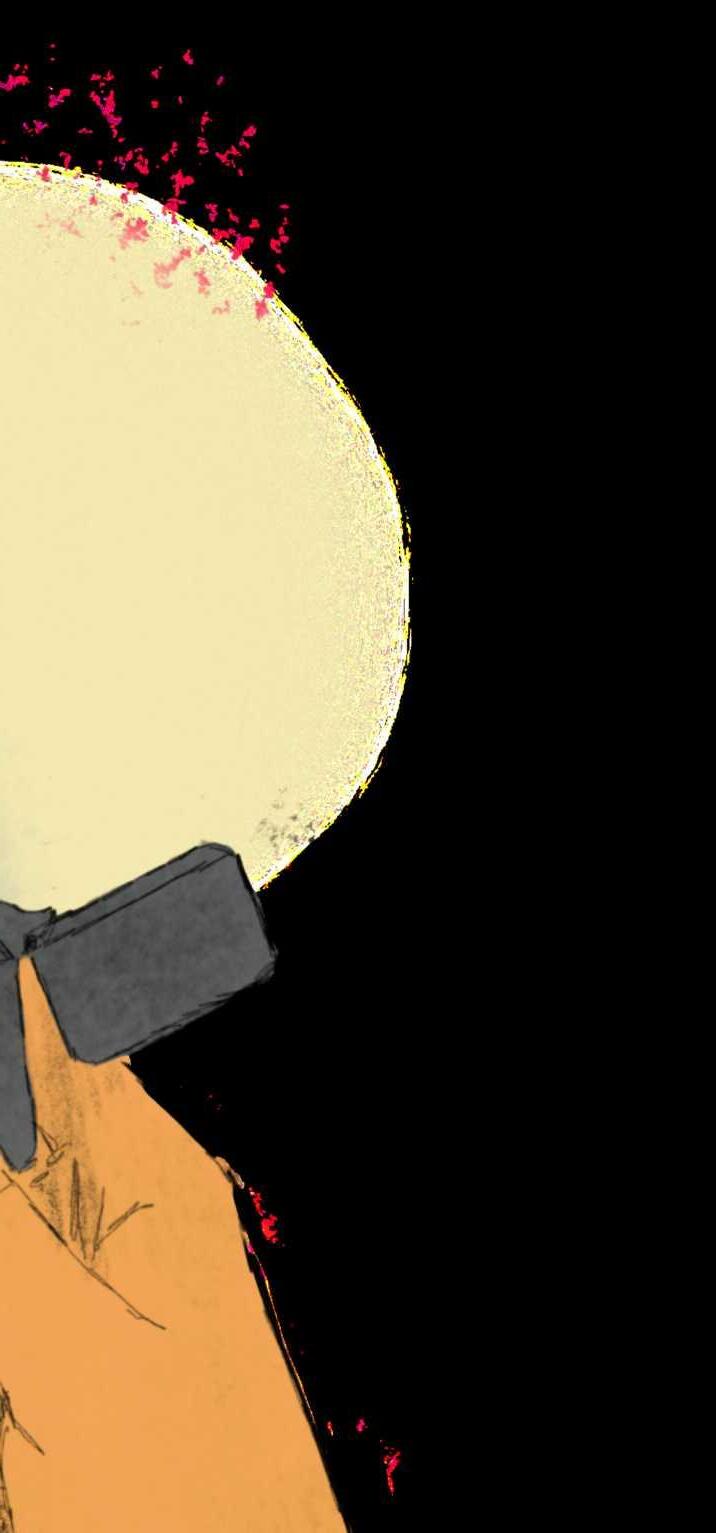
my sheets smell only of me and the girl that loves me dries my tears off of me, tenderly, like my mother does in her drunken dreams and doesn’t ask for the time i wasted back my sick sleep of relief gets captured by dreams of grief and the guilt of the days i neglect her for you the beautiful days i count down for nothing have moth bites in them, a million you-shaped holes
i carve a monastery into shame and gild it with gold try to melt my ice over a burning bridge pray for wings and kiss the sun i fall (i fall) but i never crash i go out clean, without evidence not the porcelain doll i should have been no shrapnels for you to kiss and put together with the blood on your lips you would sign love letters to foreign lands

they see you with your new colors blank eyes fresh tattoos and i become the punchline to a heartbeat i can sing along to what they call mourning i polish and pray to every morning as i vigilantly watch the earth satiate its thirst with the tongues you used to puncture black drips off of my lashes and becomes a night where the moon no longer is a broken plate but a mirror, a mutilation of the sun, proof of life
i strike a match and take down love letters, keep them
to call my memories my own and give us peace i kiss my fickle heart with flaming lips scare the worms out, breathe in and out


Art by Raegan Boettcher
Design by Noelle Blake







By: Eda Naz Gokdemir
Art by: Idil Sahin
Design by: Ella Grim



“Hey, you are voting, right?”

“You












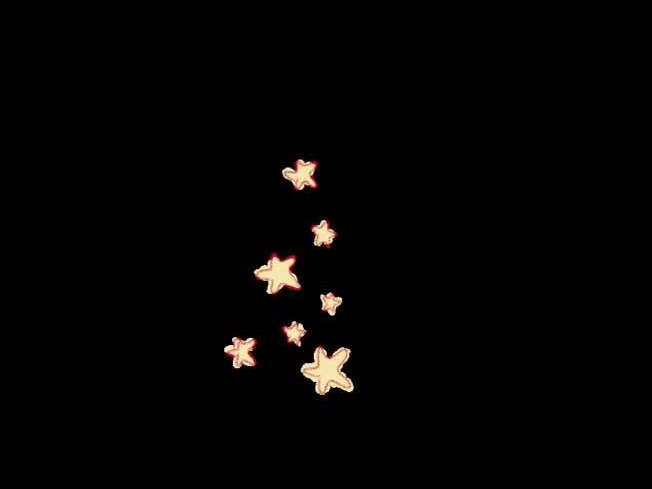

Content Warning: mentions of murder and bodily harm




“I’m so sorry; I cannot.”
do not have to apologize to me.”





It’s nine in the morning, and I wake up to shame. I stare at the message my friend back home sent me. It’s already hve in the afternoon for her. She has returned from classes, scrolling through her phone, probably reading about citizens abandoned to die under the rubble of buildings built to collapse, a woman’s murderer walking free once again, and how to prevent a potential, highly likely, election fraud or a civil war in a far-away, “democratic” nation I once called my own.

Five in the afternoon was when despair started hitting me. It was when I came back home from school, exhausted, confronted with a pile of homework that was my ticket out of a crumbling country. We are ruined, the news anchor said in the only remaining “independent,” “left-wing” TV channel, accompanied by dinner chewed silently every eve





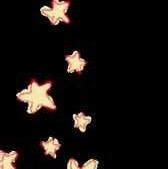
















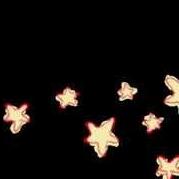






ning. I remembered watching the news on countless nights like this — I remembered how they found the dismembered body of a high school girl murdered by her boyfriend, red nail polish on her hngernails, her arm left to rot in the trash can. I remembered how I could not paint my nails for months. Somehow, by the age of ten, I was taught that femininity killed, not men. iat if a woman was beaten by her husband, she deserved it. I did not yet know at the time that I would keep thinking of the girl with the missing arm every time I painted my nails, for it would take me years to stop feeling vulnerable, stupid, afraid every time I presented more feminine than usual. It would take me years to feel the tiniest bit of security in my womanhood, to stop feeling shame for all the ways others could hurt me, to realize that I did not put my body in danger, others did. I remembered how bombs kept going oj in airports, tourist attractions, and the busiest streets in the city where I went to school. I taught myself how to be afraid of crowds, lonely men with backpacks, walking alone in the city I was supposed to make a home in. I remembered how they put journalists in jail one after the other, I remembered how we learned to joke about it: Silivri is cold. 1 I remembered how I was lectured by the school principal, to count myself lucky that she was protecting us from the dangers our pens could bring us, by acting exactly like the very dangers she was trying to denounce. Yet, nothing bad had happened to me; I was guarded, privileged, secure in the comfort of a regular, secular middle-class family. I felt weak for fearing my country, and feeling weak made me fear it more, to hate myself and my place in it. You need to get out, my parents said over the news. We are doing everything we can so that you can be free.


























I hnd myself on the land of the free. I do not know why I am here. It feels like running away. It feels like I never wanted to be here in the hrst place. I just had to be, yet it is a privilege to be. It is a privilege, I remind myself, as I am waiting at the customs line in the Boston airport. I watch the K-9



















































dogs, police okcers, and warnings on the screens; I’m privileged, I’m a nonresident alien with “rights,” protected by the laws that were built to keep me out. I’m lucky that they stamped my good-for-nothing passport and let me in instead of locking it away. I’m lucky that I pass as white: my identity, unbelonging, foreignness invisible. ie closest family member is an ocean away, but I am grateful that no one can notice me enough to hate me here yet. My accent gets heavier when I’m in distress, when I get sick, when I do not know where to go, but at least they cannot tell I am a nonresident alien until I start speaking, if only I can stay silent long enough. I work for twelve dollars an hour, ten to fourteen hours every week, when my friends back home spend that time walking around a city I just learned how to love, shouting for my rights in protests where they can get arrested, tear-gassed, beaten. “It’s a privilege to earn that much money,” my friend tells me, “that’s the equivalent of an entry-level job in engineering here.” I’m grateful, I tell myself, as I get taxed on my hnancial aid for food and board. It’s your income, the US government says, it’s the price of your privilege. My privilege costs my parents almost twenty thousand in my home currency to have me back home, to hug me, to speak to me in my mother tongue. I’m forgetting how to speak my native language, feeling out of place in the conversations of friends who stayed behind. Yet I’m privileged that I learned English when I did. “I envy you so much; you do not have to do drill!” I sit and smile when they make jokes about places I’ve never been, cultural moments I’ve never celebrated, rights I’ve never had. iey are speaking a language I will never learn, but I’m grateful that they are not laughing at me even when I cannot laugh with them. I’m lucky that no one asks me to account for the crimes of my ancestors, that they are kind





enough to ask me how to pronounce my name, that no one treats me as a terrorist.
It is a privilege to be this free.


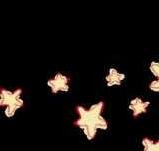


It’s nine in the morning, and I remember I cannot vote. iat I did not care enough to vote. iat I was tired of caring, of not belonging, of feeling displaced. I make excuses for my apathy: I cannot vote because I missed the deadline to go to the consulate hrst to prove my residency, second to vote. Two trips that take twelve hours, cost a hundred and sixty dollars that I only earn in thirteen hours. Twenty-hve hours out of my life for an election I cannot bring myself to be hopeful about, for a people that kept electing leaders that brought them to ruin, for a country that taught me how to be ashamed and afraid of who I am.









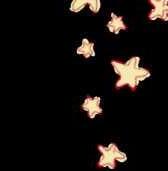




































I hate that I hate my country. I hate that it left me no choice but to leave, not knowing where I will belong next, when, if at all, I can belong again. But perhaps I never felt like I was at home.Home felt like displacement. I felt like God made a mistake in putting me where I was: a queer woman with internalized homophobia, who cannot come to terms with her gender, sexuality, religion, ideology… A country that raised a generation of cynics too afraid and weakened to hope. A country that expects us to return and “hx” what the past generations broke. “Go and study abroad, then come back and change your country,” our history teacher used to tell us. ie same teacher who taught us how our people kept making the same mistakes over and over again throughout our history of discrimination, subjugation, and fear. ie same teacher who taught us how to apologize for the crimes our country committed, how to build defenses against the prejudices of the westerners as if we were representatives of our na












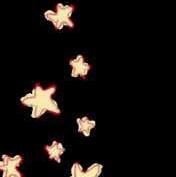





of ignorance and amid a plague of forgetfulness. Why should I have to carry all of this? Why should I be responsible for all the past mistakes, present misunderstandings, future worries of an entire nation? It is heavy, and carrying it all my life left no power in me. I feel old, as old as the land I am from, yet young, too young to know what to do with it all. Why should I care, I ask myself. I just happened to be born there. I only care about the people I love, the family and friends who are still stuck there. I owe nothing to a faraway, autocratic state that is barely a republic anymore. Why waste my breath and time talking about the endless political controversies of a nation when I can preserve that energy to help the people around me, when my hardwork and skills are better used elsewhere, when I only have a limited amount of stamina? I choose who to care about, who to love, not the conditions of my birth. Yet I am afraid. I fear for all the loved ones left in the country. “Can you a way to leave?” I text my mom after the rst round of election results are announced. I cannot stand having my loved ones remain in a country I do not trust. I feel guilty. I should have voted. I should have





of something they cannot even name — frightened of themselves, of their own desires and hopes, of crossing boundaries built centuries ago. Children who died under rubble because their parents could not a ord better housing, in buildings the authorities enabled through bribes and lies, where they abandoned families to cry out for someone to save them until they ran out of breath. Children who are taught to hate and blame each other. Children who have to learn by themselves how to love and rejoice in who they are and where they are.
It’s nine in the morning, and I let shame consume me. “You do not have to apologize to me.” I stare at the text my friend sent me. I do not know who to apologize to — murdered women, victims of earthquakes, or myself? I feel like both the perpetrator and the victim of decades of wrongdoings. I am uncomfortable in my pain: there are centuries of hate crimes, unfair laws, femicides, censored cries in my chest. I feel guilty for carrying it all, and doing nothing of substance about it. I cannot channel my anger into something “productive,” “political,” or “revolutionary.” I taught myself that to hope was pointless, foolish, naive. I recognize that my pain is a form of privilege, but it still hurts. After all, I still call that faraway land I hate so much home if that word even means anything anymore. I nd no sense of reconciliation, comfort, or safety in it perhaps because I am still trying to teach myself that to seek joy in home is not a privilege, it is a right.
I was frightened, silenced, disciplined to the bone.
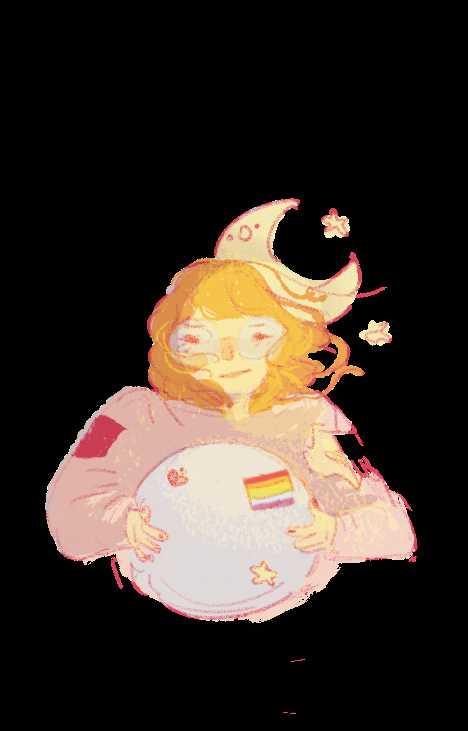


The uproar in the crowd signifies the start of the show. A girl with swinging blue pigtails appears center stage, shining in the heavenly glow of the stadium lighting like a goddess. Her movements and voice resemble those of a real person, but she is far more perfect than any human with her flawless appearance, attractive voice, inexhaustible energy and in-depth individual connection with the audience below. She is Hatsune Miku*, the first Japanese vocaloid (Singing voice synthesizer software product) to be developed and distributed by Cryton Future Media. Initially released in August 2007, Miku soon received great popularity in Japan and other fast-developing Asian countries. Different from real objective entities and virtual narrative idols constructed in novels and comics, vocaloids, or virtual idols, are constructed with digital reproduction technology (3-D projection), artificial intelligence, and music synthesis software. The target users of vocaloids are otakus: socially isolated people who have a greater connection to virtual beings than to reality. The “high tech, low life” condition in modern Asia, which refers to the lack of real, deep connection between humans in the modern world dominated by fast-developing technology, accounts for the birth of virtual idols and otakus since a group of people started to seek their emotional connection with a technical product.[1]

Source: TenneLuna, DeviantArt, 2020
This paper examines such connections between people and technology, especially attending to the parasocial relations that otakus forge with virtual idols. I propose that such relationships are often rich, interesting, and satisfying; that, as such, they can be as real as are our relations with other humans. Exploring the question of whether an otaku’s relationship with virtual idols is substantially different from our relationships with other humans, I argue that relating is being (it is through relating to virtual idols that otakus come into existence); it is not the material form of the actors (otakus and virtual idols, the two members engaged in the relationship) but rather the kinds of relationships that the actors craft with each other, that hold together the actor networks (made up of various relationships between different members) forming the conditions of their existence.

My motivation for the research is my fascination with the non-orthodox, real relationships (here “real” means a concrete feeling of substantial interaction and engagement) humans can form with virtual beings. This kind of relationship is even more intriguing when it comes to otakus and virtual idols, due to the complicated co-dependence between the users and the technologies that bring each other into being, reorienting the relationship between audience and performing artist. What’s more, the relationship dissolves traditional Western dualism and questions the conventional feature of the actor that determines a relationship. Despite previous social critique of otakus’ relationship with virtual idols as inferior and non-substantial, it is found that otakus report feeling the deepest sense of joy and belongingness when they interact with virtual idols.
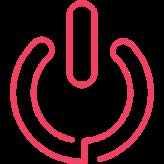
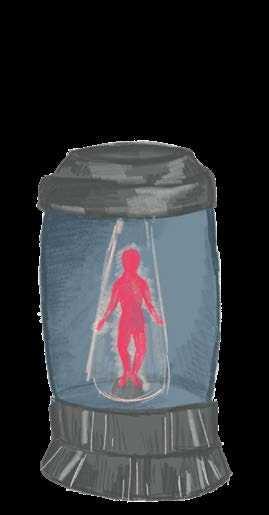
By: Joyce Li Art by: Sarah Berman
Design by: Caty Brown

Virtual idols and otakus exist in a complicated, mutually constitutive set of relationships: a network consisting of interactions. Although Miku is a virtual figure, she is able to “live” in the three-dimensional world, presenting as a human-like singer with a body, performance and a voice, as well as interacting with real singers and audiences in this form. In addition, she functions as an instrument for songs written by any composer, providing the opportunity for ordinary people to make their music heard by themselves and by others. Users, meanwhile, can DIY the preferred appearance and characteristics of their own virtual idol, which is a personal interactive version of the original setting, in their technical devices; eventually the most popular songs, appearances and characteristics designed by individual otakus are shown to the fans in the public concert.
In other words, every otaku is involved in the creation process through which Miku comes into existence; she becomes more human-like as the public’s interventions enhance the various aspects of her design. Thus, Miku “comes into substantial existence” through her complicated interaction, or “relating” with otakus in a social-technical network. The network is defined by Bruno Latour, Michel Callon and John Law as an “actor network,” which includes the non-human-centered process of ordering or the ways in which societal order is achieved. It also includes the role material elements and other nonhumans play in that process, seeking to develop a ‘symmetrical’ view across the previously inscribed nature/culture/technology divides.
It assumes that nothing has reality or form outside the enactment of those relations. Its studies explore and characterize the webs and the practices that carry them.[2] Essentially, actor network approach describes human and nonhuman actors with the same language, and grants them equal amounts of agency within “webs” or “actor-networks.” The actors are simply constituent nodes that facilitate a larger functioning. Anthrax spores, Portuguese navigators, car batteries, Thomas Edison, the Renault Car Company, and scallops are all given equal treatment as nodal points within an actor-network.[3]
According to the actor network theorists, actors can be all kinds of things and are all inherently equal. As Latour puts it, “any social system is an association of heterogeneous elements such as humans, norms, texts, devices, machines, and technology, thus granting equal weight to humans and non-human (machine) entities in the analysis of the social”.[4] Law agrees that the social elements in a system should not be given superior status.

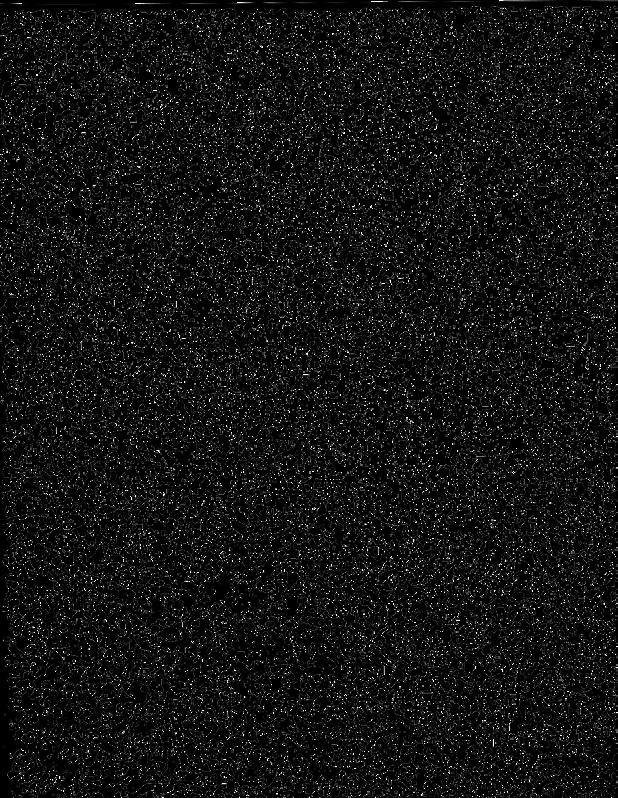
In fact, the natural world and artifacts may enter the account as an explanans, instead of explanandum with no voice of their own in the explanation. Thus, an actor-network approach suggests that Miku and otakus hold equal weight as actors in the network regardless of their attributes. It serves as a fundamental premise for later analysis, especially of power and mastery.
In terms of power distribution, relationships may afford certain actors more power than others, depending on the circumstances. As humans are not superior actors in the network according to the prior feature, we don’t have a constant state of dominance in power attribution as well. Power balance shifts all the time in the otaku-Miku relationship: sometimes otakus are the creators that define Miku, in other occasions Miku motivates otakus to do certain things (“faire faire”/attachment), inducing them to act according to their previous projections on her (counter-projection/expectation), or offering them material for subjective processing (imagination).
The “attachment” process is similar to what Gomart and Hennion refer to as “consensual self-abandonment”

Thus, an actornetwork approach suggests that Miku and otakus hold equal weight as actors in the network regardless of their attributes.
thropomorphic virtual agents can impact motivational outcomes such as self-efficacy and attitude change. Such anthropomorphic agents can be designed as simulated social models, providing social influence as virtual ‘role models’ for a target audience and context.[7] Likewise, otakus have the tendency to act in accordance with how their designed virtual idol acts or how they imagine that Miku expects them to act. In terms of subjective processing, an interviewee told me what he, an otaku, considered as the most important factor in his relationship with Miku was the imaginary space Miku provided. “I truly feel her existence not when I look at her image but when I close my eyes to imagine her standing by my side and we together having incredible adventures…Yeah all these are in my imagination, but they make this relationship feel real…” Indeed, Miku is both concrete and potential, with vivid characteristics like a real human but also potential space for users to imagine their own experience/ stories with her. In this extended interaction, she guides s along in their imaginary interaction (an element of fantasy), offering them another level of connection.
Bibliography:
[1] Matsue, Jennifer Milioto. “The Ideal Idol.” Vamping the Stage, 2017, doi:10.21313/hawaii/9780824869861.003.0015.
[2] Law, John. “Actor Network Theory and Material Semiotics.” The New Blackwell Companion to Social Theory, 2009, pp. 141–158., doi:10.1002/9781444304992.ch7.
[3] The Society Pages. “A Brief Summary of Actor Network Theory - Cyborgology.” Thesocietypages.org, 2013. https://thesocietypages.org/cyborgology/2011/12/02/a-brief-summary-of-actor-network-theory/.
[4] Latour, B.: Reassembling the Social-an Introduction to Actor-Network-Theory. Oxford University Press, Oxford (2005)
[5] Law, John, and Annemarie Mol. “The Actor-Enacted: Cumbrian Sheep in 2001.” Material Agency, 2008, pp. 57–77., doi:10.1007/978-0-387-74711-8_4.
[6] Emilie Gomart, Antoine Hennion. “A Sociology of Attachment: Music Amateurs, Drug Users - Emilie Gomart, Antoine Hennion, 1999.” SAGE Journals, journals.sagepub.com/doi/10.1111/j.1467-954X.1999.tb03490.x.
[7] Baylor, Amy L. “Promoting Motivation with Virtual Agents and Avatars: Role of Visual Presence and Appearance.” Philosophical Transactions of the Royal Society B: Biological Sciences, vol. 364, no. 1535, 2009, pp. 3559–3565., doi:10.1098/rstb.2009.0148.
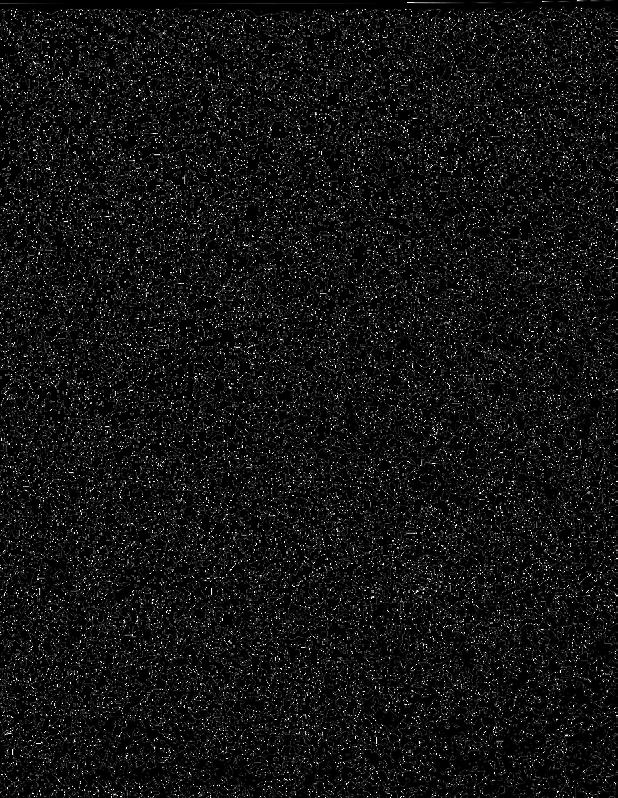
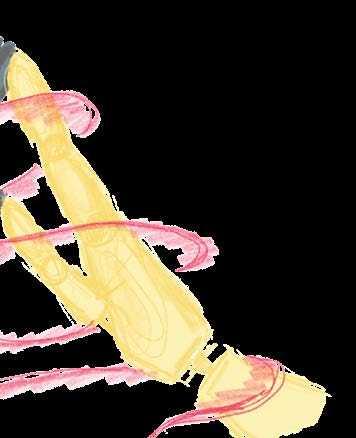
content warning: discusses depression, mentions of suicide
BY: NAYA LUNNEY
ART BY: SAM PAISLEY
DESIGN BY: KATHERINE ARRINGTON
It’s hard finding your way back to something you don’t remember losing. Tediously picking through memories, searching for the moment when it silently
disappeared. The shocking discovery that you’re missing a part of yourself which you thought was integral to your very being.
The last Sunday of February, 2023. That was the day I realized I’d lost my joy. I remember because I was on the phone with my parents. It wasn’t the first time I’d broken down over the phone to them that term. It was the first time they’d asked me if I would consider talking to a psychiatrist. Something about mood stabilizers. A second passed… two… three… I forced the stale air out of my lungs.
How had I missed it? How did my parents half a world away recognize the change in me which I had been ignoring for so long? What possibly could have changed things so drastically?

ANOTHER STEP BACK
The mood swings didn’t appear out of nowhere. They crept up slowly from behind, encroaching upon my periphery until my entire vision was blurred. I couldn’t see. Clearly.
ANOTHER STEP
The first wave of uncertainty. An upheaval. Blunt. I knew this part was coming. They said it would. It’s normal. It will pass. Probably.
ANOTHER
December 19, 2021. The day I started taking oral contraceptives.
Let’s be clear. This stor y is not anti-contraceptive. It is a reminder for anyone choosing to take oral contraceptives to pay close attention to the ways their medication affects their mental and physical wellbeing, whether that occurs in a positive or negative way. Everyone uses and responds to contraception differently, which is why we need to stop sweeping this conversation
under the rug and instead work on dismantling common perceptions of what it means to be on “the pill.”
My own experience with oral contraceptives has been turbulent to say the least. It takes time to figure out which medication meshes with your body the best, or rather which one has the lowest impact on you. It is incredibly frustrating when you spend months coming to terms with your specific reactions to new medication, but you end up having to switch to a new prescription due to uncomfortable or intolerable side effects and the process of adjustment begins again. The first three months on a new pill is always the hardest for me. With different levels of estrogen and progesterone being flung through my body at new intervals, it takes a while to figure out what my new “normal” will feel like. I bled for two months straight when I first started using the medication I’m on now. While that was physically noticeable, the mental and emotional effects of changing hormone levels can be more difficult to peg.
Medication-induced mental health changes become even harder to recognize in environments of ever-changing conditions. Living as a college student, for example. Am I feeling crappy because I switched to new meds a couple weeks ago, or is it because my course load is a lot heavier this term than it was last? Am I in a funk because my cortisol response has been blunted or because it’s winter and I’m also facing seasonal depression? Am I having a meltdown because my hormone levels are shifting or because I’m homesick? It becomes impossible to separate the everyday life stressors from the hormones.

What most concerns me, though, is that we still don’t have a complete understanding of the physiological and psychological effects oral contraceptives have on our bodies. Oral contraceptives have been approved for sale in the United States by the Food and Drug Administration since 1960, and yet more than 60 years later there are still alarming gaps in our knowledge about women’s contraceptive health.[1] We know very little about the neurological impact hormonal contraceptives have on women’s brains, and we’ve accumulated even less knowledge on their psychological consequences. However, research has recently begun expanding to include mental health issues in literature focused on oral contraception.
A 2016 study from Denmark provides compelling evidence for increased rates of depression and anxiety in women taking oral contraceptives.[2] Basically, Denmark keeps track of its citizens’ individual social behavior and health through a series of social registers. With this data, researchers tracked the mental wellness of all Danish women and adolescents aged 15 to 34 years old, who had no prior documentation of depression diagnoses, over a timespan of 19 years (Jan. 1995–Dec. 2013). What they found was that women on hormonal contraceptives were 50% more likely to be diagnosed with depression and be prescribed antidepressants than women who were not on hormonal contraceptives. Women on hormonal contraceptives were also twice as likely to have attempted suicide than women who were not, with the number of fatal suicide attempts rising higher in women on hormonal contraception — triple that of their counterparts who did not use hormonal contraception.
Of course, this is only one study and we cannot claim that these correlations equal causation. Hormonal contraception is just one of the many factors that may have contributed to these women’s experiences with depression. Nevertheless, these statistics should raise red flags. I understand that studies like this one can be hard to swallow. Not only are its statistical results and conclusions difficult to process emotionally, but I find it extremely counterintuitive to criticize contraceptive options.
Take away birth control and you take away a woman’s freedom. It is that simple. Her right to choose how she lives her life depends on her ability to decide if, when, and with whom she wants to get pregnant. While contraceptives may negatively impact mental health, the benefits of having contraceptive options at all arguably outweighs the risk. The ability to live independently, plan for pregnancy, and avoid unwanted pregnancies has been shown to greatly reduce stress and anxiety for women who are not ready, for whatever reason, to take on the responsibility of raising a child.[3] This has an immensely positive effect on women’s mental health which should not be discounted.
‘The pill’ was a huge step towards women’s liberation. It is because of birth control that we no longer
have to view pregnancy as the biological binding which men have historically used to restrain us to domesticity. We can decide whether or not bearing children is a joy we want to embrace. It is only with this choice, when women are able to have sex and not face the consequence of pregnancy like men, that the two can be deemed “equal.” I get it: it’s completely reasonable to feel protective of contraceptives, but that doesn’t mean we should hold them beyond reproach.
Anyone who has used oral contraceptives knows that potential side effects can be concerning and often contradictory. Weight gain is a common fear among oral contraceptive users, but depending on the prescription it could just as easily cause noticeable weight loss. Some might bleed excessively after starting medication while others won’t bleed at all. One person might be thrown into overwhelming anxiety by their meds, while another uses the same contraceptive for the purpose of treating PMDD (Premenstrual Dysphoric Disorder) symptoms including anxiety and depression.[4] At this point, it feels like we’re pulling numbers from a hat. So, how are we supposed to negotiate these conflicting risk factors?
I can’t say I know the answer to that question. What I do know is that we need the knowledge to protect ourselves and make informed decisions, and for that to be possible we need a more comprehensive understanding of what oral contraceptives do to our bodies, especially to our brains. Until then, we need to take care of ourselves and each other. If you’re starting a new medication (contraceptive or otherwise) that has the potential to impact your mental health, consider asking someone close to you to pay attention. They may notice changes in your mood or behavior which you might not have discerned. Alternatively, keep a journal to help track your mood alongside your new medication routine. What’s important is that you are in touch with subtle, gradual shifts — that way it’s harder to be overwhelmed by seemingly sudden transformations.
There is no one-size-fits-all when it comes to birth control. Every person’s journey with contraception is unique and deeply personal. While no one should feel obligated to talk about their private experiences, we should be working harder to destigmatize discussions about contraceptive effects on women’s mental and

physical well-being. We need to initiate these conversations by making information about oral contraceptives and their potential effects more accessible, creating a supportive environment for people to share their own experiences. Otherwise the relentless cycle of shame, silence, pain and isolation will continue for those who fear no one will listen to their story. It is up to each individual to choose what they do with their own body, but it is up to us to provide a framework of compassion to ensure open dialogue is not just allowed but considered the norm.

[1] The Birth Control Pill a History - Planned Parenthood, (Planned Parenthood Federation of America, 2015). https://www.plannedparenthood.org/ files/1514/3518/7100/Pill_History_FactSheet.pdf.
[2]Charlotte W Skovlund, Lina S Mørch, Lars V Kessing, and Øjvind Lidegaard, Association of Hormonal Contraception With Depression, (JAMA Psychiatry, 2017).
[3]Kelli S Hall, Julia R Steinberg, Carrie A Cwiak, Rebecca H Allen, and Sheila M Marcus, Contraception and Mental Health: A Commentary on the Evidence and Principles for Practice, (Am J Obstet Gynecol, 2014).
[4]Cerner Multum, Nikki Uses, Side Effects & Warnings, (Drugs.com, 2023). https://www.drugs.com/ mtm/nikki.html.


Art By: Camille Yang & Kaitlyn Anderson
Design By: Kaitlyn Anderson
By: Caty Brown Preface
Humans, or at least something we can recognize as human, have been giving birth for 2 million years. With this long, long lineage of mothers behind each of us, I doubt I have anything new to say about birth, pregnancy, and babies. But man, does it feel like it. I can’t stop thinking about how my ovaries are full of slowly dying eggs, bound to a time clock that will at some point expire. About how I’ll have a 3 year window to get real busy between the end of residency and the age where I’ll have a geriatric pregnancy (35, if you’re wondering). About how the only pregnancy stories I’ve heard from my mother and grandmothers are horrible experiences, and maybe I will have a horrible pregnancy too. About how I’ll have to figure out if I can breastfeed while also being a doctor. About how I’m assuming I’ll even have a partner to make babies with in this golden window. Why do all these thoughts feel so new and unfamiliar? Why do I feel like the first person to ever think these things? Why do I feel such a strong pressure to write them down, to make people read them? Maybe I am terribly self-centered, but maybe it’s because women’s histories are no longer passed down, my grandmother’s life-world doesn’t go further than her. hough it isn’t just women who give birth, women exist at a unique nexus in the world, living with a harshly gendered expectation for moral reproduction as well as eicient production. By and large, it is women who bear the brunt of the ethical weight to produce the next labor force and give them all of the support and nutrients they need, while also being expected to act as productive laborers themselves. How does the business of baby-making ever happen under this weight? Especially without anyone to warn us, to prepare young women for the unique challenges of birth, babies, families, and maintaining an individual life.
Had I not asked my grandmother directly, I wouldn’t have ever known that she gave birth under the horrors of twilight sleep, treated as a reproductive body as doctors knocked her out, removed her baby from her body, and woke her up again. I wouldn’t have ever known that she believed in breastfeeding until three as an act of love and caring, setting her babies up for the best life she could. I wouldn’t have ever known that she learned to drive just so she could attend her obstetrician appointments that my grandfather was too busy working to drive her to. I wouldn’t have ever known that she thought something was wrong with her anatomy, and that’s why she had two Cesareans. Why aren’t these stories told anymore? When did birth become something unworthy of talking to your family about?

Humans have diicult births, with risks of ob structed labor, hemorrhage, tearing, fistula… the list goes on. he entire discussion here could be about that, honestly, given the host of interconnected factors that aject how well birth goes for mom, and for baby. Compared to our closest primate relatives, we have significantly longer, more complicated, and more painful births. Some of those di deeply connected to why we are human. For exam ple, humans are obligate bipeds. shift to stand upright required changes to our pelvis shape to stabilize our hips via decreasing the flexi bility of the pelvic joints, changing the angle of our leg connection, and shortening the pelvis (1). reduced the size of our birth canal, and made its stretch more diicult, creating a tight squeeze for the skull of the neonate.


“''Standing up straight and caring about one another are uniquely human behaviors that are intimately connected to the way we give birth.''
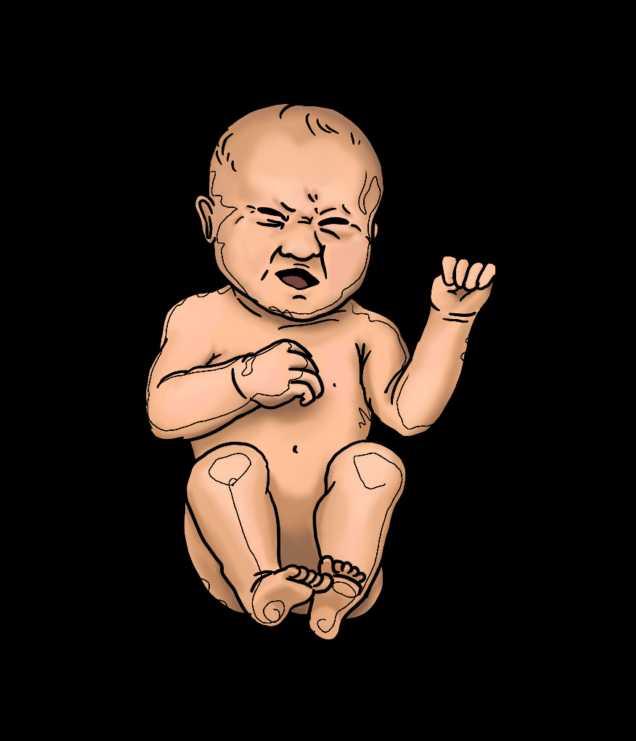
Human babies are born with unfused skulls (unlike most primates), which are often forced to deform as they flex and squeeze within our bony is is likely an evolutionary adaptation to try to avoid the obstructed labor common in humans. Not only are babies born with big heads due to our giant brains, but also with wide shoulders, necessitating a rotation during birth in order to match their widest plane with the widest plane of the birth canal as they pass through it. Human babies, in contrast to most other primates, are therefore born facing backward relative to mom. Some argue that this brought about the oldest human profession, midwifery. Because mothers cannot reach down to pull out their own babies without risking damage to their spines, a birth helper was needed to help with this last stage. he word origins of midwifery mean “with woman,” describing the highly social, supportive role other humans play in keeping babies and mothers safe. No other primate species has help during birth, but it is a human universal. It’s hard for me to imagine going oj on my own to have a baby, without anyone to reassure me, bring me water or hot towels, hold my hand. Much more than just baby catchers, midwives are part of our human family, making our diicult and dangerous births a little easier. Standing up straight and caring about one another are uniquely human behaviors that are intimately connected to the way we give birth.
Why do we even give birth at all, if it’s so diicult and dangerous? hough I would love to answer that women decide to become mothers because it brings them joy, I fear the answer is far more complex than that. In some languages, the word womanhood is synonymous with motherhood, meaning that a childless woman isn’t a woman at all. For example, in Egypt, the word “ ” can translate to either womanhood or femininity. Childlessness therefore erodes the identity of the woman herself, who is blamed and held responsible for her reproductive failings. his is also the case in Bengali, where womanhood is a synonym for femininity. Bangladeshi women are viewed as successful women only if they are successful mothers. his is felt most strongly by poor Bangladeshi women (whose livelihoods rely more strongly on agriculture and children as labor, which will be discussed below), but


even akuent Bangladeshi women feel guilt and stigmatization if they fail to prove their fertility. here is the expectation that a good wife will “prove her usefulness…contribute to the prosperity of her in-law’s family” by giving birth to many babies. If she fails to prove her fecundity, she will remain a stranger to her new family, never gaining acceptance, and in the case of poor women, even being denied food and being abandoned (2). his same sentiment is felt across cultures, even when womanhood and femininity are recognized as being distinct. For example, akuent women who struggle to get pregnant in highly medically developed regions often turn to in-vitro fertilization. IVF often constructs the reproductive body as failing, while the clinics pride themselves on their success statistics for women

''Don't fail, eggs, don't fail, uterus.
who couldn’t get pregnant the old-fashioned way. he hopeful women compare themselves to other patients in the clinic: “ and wonder who will make the statistics. he woman next to you tells you she has fifteen eggs, yesterday you’d been told you had five but one was bigger than the others… You beg those little ones to grow.” (3) Don’t fail, eggs, don’t fail, uterus. Don’t fail, woman.
Birth is never just birth, because babies are never just babies. Babies are labor power, and women are the productive and reproductive entities that bear the burden of the next generation of workers. his view is by nature incredibly generalized, but it does explain many of the population dynamics cross-culturally and across time. “Around the world today, the general picture is of declining fertility…lowest overall in Europe and East Asia, where below replacement fertility (meaning that women are having fewer children than are required to replace population) has become the norm” (4). In contrast to days past where “women have had an average of five or more live births each,” women now are largely choosing to have fewer children. he regions where this is not true are primarily “sub-Saharan Africa, some countries in southwest Asia and the Arabian peninsula, and Papua New Guinea” (4).
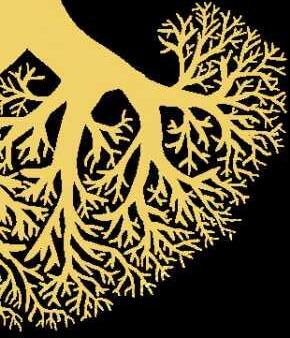
What is the dijerence between the majority of women now, versus the women in these areas and the women of the past? A whole host of things, all of which tie into the idea of reproductive costs. Pregnancy is hard, birth is hard, and raising a baby is really hard. his might be worth it if that baby proves to be a boon to your family, an additional laboring body that helps to raise crops or tend the herd (explaining some of the very high fertility rates seen amongst agriculturalists and pastoralists). It might not be worth it if the woman herself is already acting as a laborer (explaining how increasing women in the workforce decreases fertility rates) or if she wants to pursue higher education (explaining why increasingly educated women have fewer children). If I were to have a baby right now, I would probably
manage to finish undergrad here at Dartmouth, but I would probably never be able to make it through medical school, given that I would have a two-yearold during my first year. I simply don’t have the time.
Babies in lower-fertility regions act to decrease some of the social and economic mobility of their mothers not only while they are infants, but also throughout their teenage years and early adulthood. I am still dependent on my parents, economically primarily, even though I’m of reproductive age myself. Having a child, for many women across the world, is not an economic benefit, especially since most of us aspire to ensure our children’s social success, providing them with all of the expensive opportunities to succeed, like university education. It’s no surprise that birth control is so important to so many women, allowing them to decide whether or not to have these very costly children on their own time.
Don't fail, woman.''

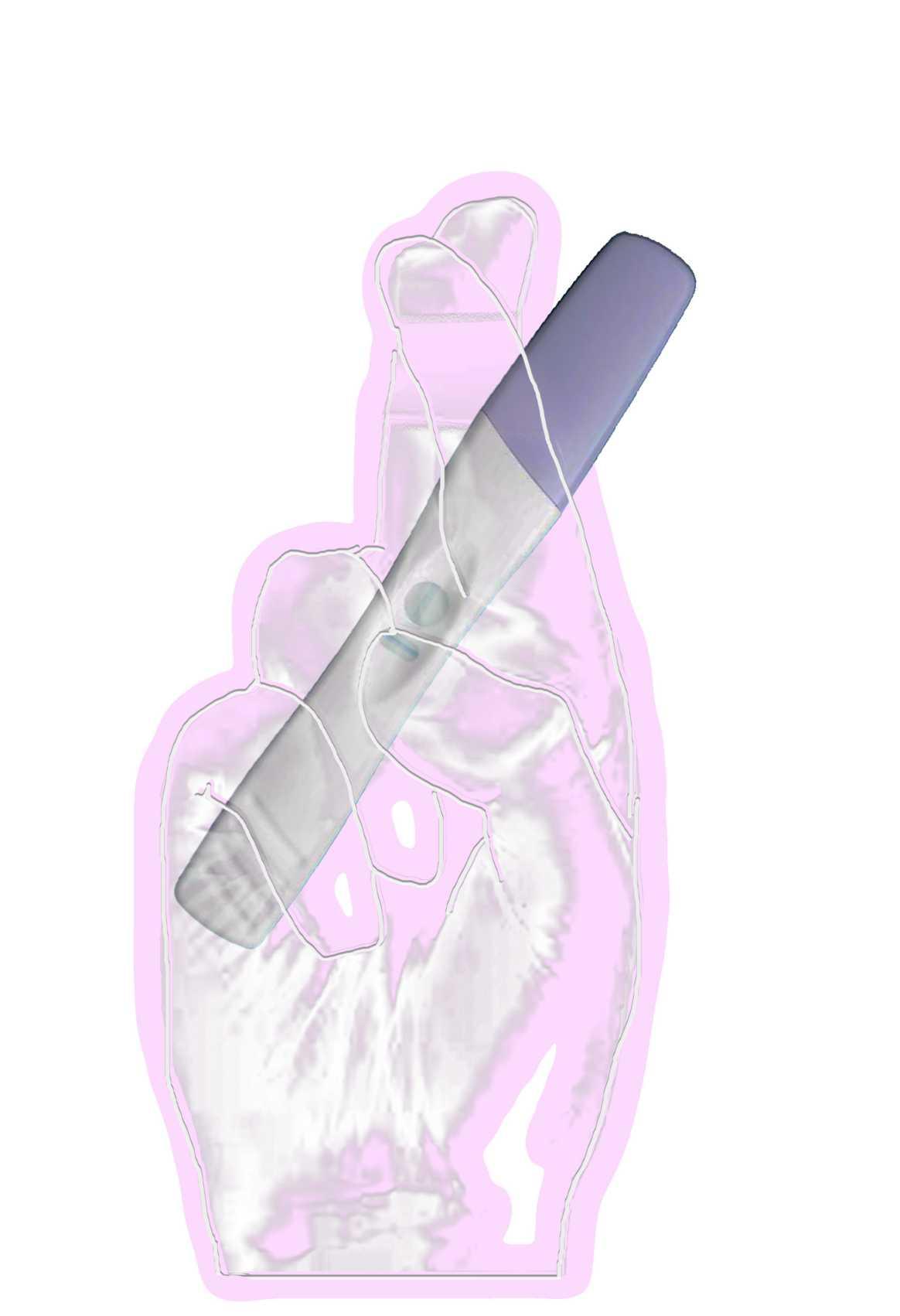
''Pregnancy grows ever more morally charged, necessitating a strict script for behavior that is almost impossible to follow.''
Wondermom ever going to manage having a baby. My life plan, as I’ve alluded to, is pretty tightly scheduled out. When I graduate from undergrad in a few months, I’ll be 22. I’ll move away from Hanover, spend two years working at a research lab before almost cer tainly moving again, to wherever I’ll go to medical school. I’ll be 24. I will (cross your fingers!) spend four years there, before moving again to wherever I will complete my residency. I’ll be 28. Residency, at minimum, will take 4 years. I’ll be 32, and that’s the beginning of my window. Let’s all cross our fingers that amidst all the moves I have a partner at that point to get to the baby-making with. will be 3 years during which I can try for a baby, and hopefully (cross your fingers, if you still have some to cross) I have no problems getting preg
begins the actual pregnancy part! Much of which will be taking place during the final phase of my doctor-planning, where I’ll be a long-awaited
phase of my career where I’m ed as a do-it-all wondermom by my colleagues and patients while pregnant. During this, I will be navigating the ethics of what to eat (get your folate!), what not to eat (you would eat during pregnancy?), how much to eat (don’t gain too much weight!), can I even eat (morning sick ness getting to you?), and so much more. Pregnan cy grows ever more morally charged, necessitating a strict script for behavior that is almost impossible to follow. At the end of it, I will be rewarded with mother and grandmothers. Cross your fingers!








to watch them, partners to hold them. Part of the human condition is to have diicult births. And part of the human condition is to have people to support you, hold you and love you. I hope I get that. I hope I can do that for my babies, when they are tiny and when they are just like me, thinking brand new thoughts for what feels like the very first time.


“''Part of the human condition is to have people to support you, hold you and love you. I hope I get that.''
Sources:
[1] Haeusler, M., Grunstra, N. D. S., Martin, R. D., Krenn, V. A., Fornai, C., & Webb, N. M. (2021). he obstetrical dilemma hypothesis: there’s life in the old dog yet. Biological reviews of the Cambridge Philosophical Society, 96(5), 2031–2057. https://doi.org/10.1111/brv.12744
[2] Nahar, P., & Richters, A. (2011). Sujering of childless women in Bangladesh: the intersection of social identities of gender and class. Anthropology & medicine, 18(3), 327–338. https://doi.org/10.1080/ 13648470.2011.615911
[3] Behar, R., Gordon, D. A., & Abu-Lughod, L. (1996). A Tale of Two Pregnancies. In Women writing culture (pp. 339–349). essay, University of California Press.
[4] Gray, P. B., & Garcia, J. R. (2013). Evolution and Human Sexual Behavior. Harvard University Press. https://doi.org/10.2307/j.ctvjghw0x
[5] Snorton, C. Riley. “Anatomically Speaking: Ungendered Flesh and he Science of Sex.” Black on Both Sides: A Racial History of Trans Identity, University of Minnesota Press, Minneapolis, Minnesota, 2017, pp. 17–219.
[6] Cheyney M. (2011). Reinscribing the birthing body: homebirth as ritual performance. Medical anthropology quarterly, 25(4), 519–542. https://doi. org/10.1111/j.1548-1387.2011.01183.x
[8] Cosgrove, L., & Vaswani, A. (2020). Fetal rights, the policing of pregnancy, and meanings of the maternal in an age of neoliberalism. Journal of heoretical and Philosophical Psychology, 40(1), 43–53. https://doi.org/10.1037/teo0000139
[7] Trevathan, W. (2010). Ancient bodies, modern lives: How evolution has shaped women’s health. Oxford University Press.
By: Chloe Cordasco

*content warning: references to sexual assault, addiction*
A car starts in the parking lot, remotely.
It must have been remotely. I see no one.
No shivers, no calves, no knee-length puffers, no clue.
I have absolutely no clue, no one. No one clue.
Let us count the things I do have — nausea, cloudiness, hip dips and too much coffee. My sisters addicts like me, the trees that will never love me, a burning poisonous unrequited humming in the very center of the universe (misplaced).
I have the spiders I do not snuff out, the guests overstayed and staying — for better or for worse — the sorry excuse of words, words, words, more words, money, more money, less money, money, money, less words.
I mean it. I mean less. I am not clueless.
Not to suggest that language and a clue are brothers; if they are brothers they gather their silphium up in arms and fuck and rape and conquer (they want me to say seduce) together.
Who knows, they might get into it together. It’s incest, but sex this time. (May I watch?)
I have sunflowers, the concept, and the actuality of rain but I lack its metaphor.
Maybe, baby, sometimes, things are just too hard. Some things just ache.
We have to go back to accounting. Let’s see.
I have cold plastic ass and period underwear that might give me cancer one day (high-waisted, black with sheer, gorgeous; ty thinx) and binder, chains tears n smoke.



I’ve got good working pen The Cure many cures and of course a plethora of neuroatypicalities to choose from: your heart, your tongue, your beating brain, your fogged up smoky soul.
I’ve got effusive friends, in love and in hate with the idea of fruit and each other, thin wire railings and railings, comforter, memories I’d like to lose.
I’ve got my sanity — wolves — hard fucking time — golden gold. Gold dawn peering over GOLD coast, breathing Sunrise breathing out of here into here, slow now, slow down, baby you can make it here.
I’ve got good. Good good, that good good love, so much good, good to give good to take, and a parking lot to cry in. Got it good.
I’ve got it all.

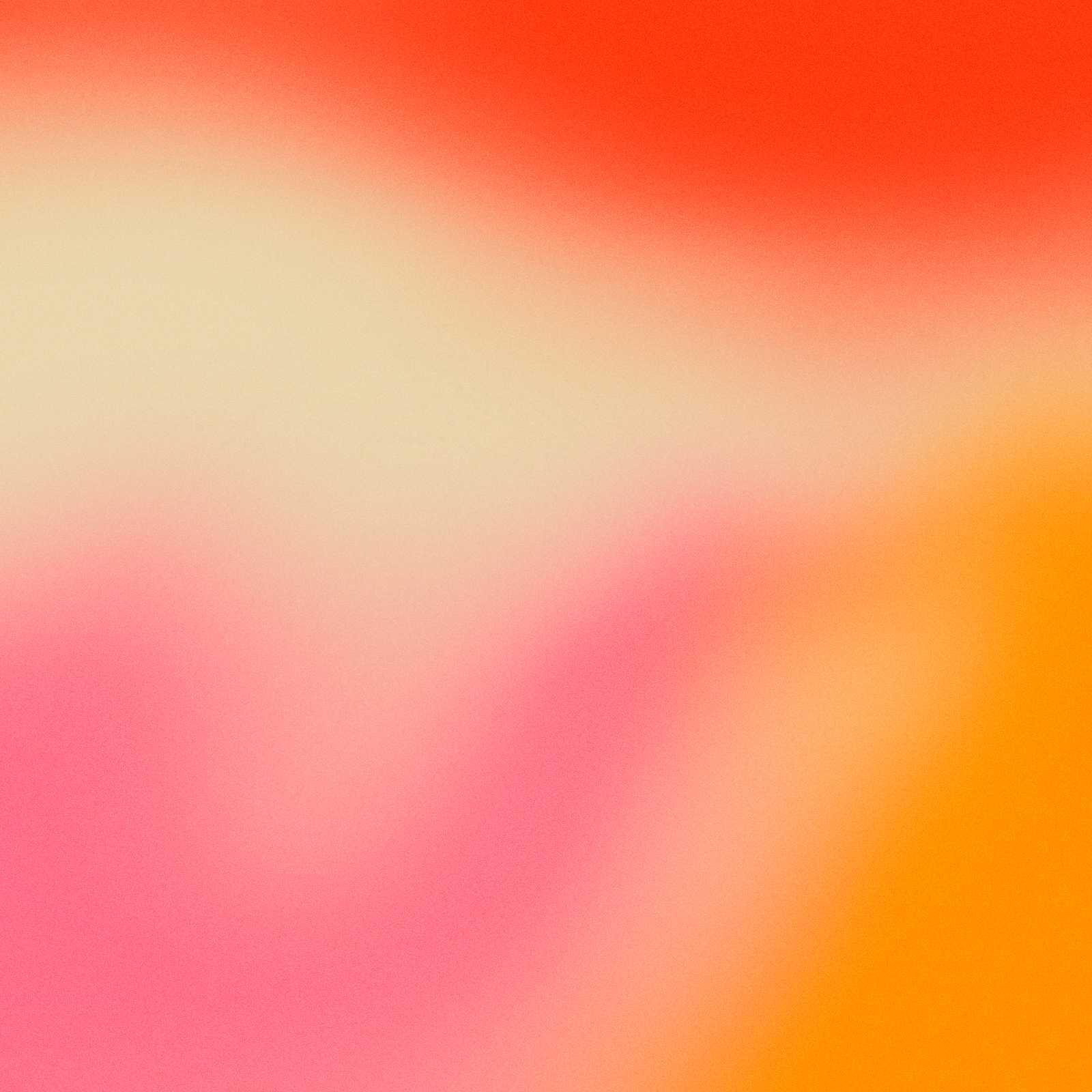




By: Anonymous

Art by: Diedrick Brackens, an American artist and weaver, known for his woven tapestries that examine African American and queer identity.
taste honey for nerves, 2021
As queer love becomes an increasingly visible part of American society, with explicit media representation and erican the dramatic growth of queer dating apps, it is critical that queer communities interrogate the beauty standards these institutions promote. Queer people don’t exist within a vacuum — queerness is often associated with non-normativity, social deconstruction, and perhaps even revolution, but the reality is that we are raised in a society where racism, misogyny, and fatphobia inhltrate every facet of our existence. iese systems of oppression are rejected in the labels and categories that queer people regard as desirable forms of self-expression, what I will refer to throughout this article as desirability archetypes. One example of a desirability archetype is the idea of a twink, a skinny, young, and typically white cisgender gay man. Unsurprisingly, twinks are considered highly desirable within gay dating pools and the physical features that are associated with this label are naturally tied to white supremacy and fatphobia. Within lesbian dating pools, there can be immense pressure to present in romantic or sexual contexts as either “masc” or “fem,” labels that can be interpreted as a rejection of heteronormativity. Yet, while it is evident that queer people can internalize harmful beauty stan-
dards steeped in systems of oppression, there is signihcant nuance to extricate in how queer desirability archetypes manifest dikerently from heterosexual desirability archetypes. In this article, I will draw from my personal experience as a queer person of color to provide one perspective on the role of desirability archetypes in the formation of queer sub-communities and the harmful ekects of rigid labeling on authentic self-expression.
If you spend an hour in a room full of single gay men, it’s more than likely that you’d hear at least one of them complain about an experience they had on the dating app Grindr. One common statement you might hear in the conversation might go something like a “gay man’s obese is a straight person’s skinny” or a more general complaint about how hard it is to get laid as a gay man of color. Grindr’s anonymity allows users to not use a prohle picture, unlike other popular dating apps such as Tinder or Hinge, and therefore it’s not unusual to see prohles that explicitly prohibit certain races or body types from reaching out with a statement like
“No fats, no fems, no Black, no Asian.” It’s important to recognize this fact as we simultaneously validate these experiences of blatant fatphobia, racism, and misogyny, while

nuclear lovers, 2021
realizing that it’s reductive to distance these issues from broader systems of oppression. Fat people, women, Black people, Asian people, and others who hold one or more of these marginalized identities experience these struggles on a daily basis, even if they do not identify as a gay man. ie failure to acknowledge how queer beauty standards derive from systematic oppression and that they akect groups beyond spaces inhabited primarily by gay men is harmful to those groups.
In addition, it can reinforce stereotypes that gay men are uniquely superhcial. Popular media often depicts queer men as superhcial and appearance-oriented, from entire shows like Queer Eye to individual characters like Jonah on Never Have I Ever. While some of these tropes are rooted in homophobic stereotypes imposed by heterosexual directors, it is important that queer communities introspect on how certain intra-group behaviors can contribute to this budding narrative. Fixating on desirability archetypes as means of classifying people into rigid groups, while not exclusively limited to queer people, can be interpreted as a superhcial behavior that is especially prevalent among gay men.
Given the harms of queer desirability archetypes, how can queer people begin to deconstruct them and make room for more authentic forms of self-expression? It is hrst important to acknowledge that categorizing people can be a form of community building. Particularly for queer people who may have had less opportunities for belonging, attaching oneself to a label might help them feel more included in queer circles. And yet, these labels remain rather limiting and largely tied to oppressive beauty standards. I do not have all the answers to resolve this dilemma but I believe that descriptors that are tied to interests, passions, and personality traits instead of appearance might facilitate more positive forms of queer community building. For example, many gay men are beginning to adopt labels such as “side” to signal a lack of interest in penetrative sex, a subversion of traditional top-bottom classihcations, or other personality-based labels such as “gay-mer” to describe an interest in video games. I imagine a world of authentic queer self-expression, one where queer people can embrace every facet of their existence without feeling pressured into certain predehned modes of behavior.

A year of assurances, 2021
I took a philosophy course about the history of materialism and discourses of life and death. In all honesty, it was kind of torturous and horrifically boring, but at least I successfully completed my TMV requirement — and I can happily say that it is over and I never have to suffer through Aristotelian philosophy again. And I admit, I did learn some things about Marxist materialism and Foucaultian historicism (including a distaste for the latter). I also learned that a lot of philosophy is bullshit. (Don’t get me wrong, I think some philosophy can be useful. But still — a lot of philosophy is bullshit.)
Nonetheless, if I had to pick one thing that really stuck with me — across hundreds and hundreds of pages of Kant, Socrates, Sartre, Hobbes, Locke, Lacan, Foucault — it would be that we need to believe in people’s inherent goodness.
I remember, very clearly, when we read excerpts from Hobbes’ Leviathan, discussing his conception of the state of nature and insistence that a sovereign is necessary to control man’s inherent violence. Hobbes famously said,
“during the time men live without a common power to keep them all in awe, they are in that condition which is called war; and such a war as is of every man against every man.” [1]
We’re in a constant fight for our lives.
The crisis in question? I mean. Look around you.
Hobbesian philosophy argues that the state of nature is war and rails against arguments for autonomy or self-governance. (Hobbes specifically argues for monarchy, but I would argue that there are few, if any, governments that actually provide their constituents complete autonomy.)
I just couldn’t fathom thinking like this — because if I didn’t believe that people were inherently good, I wouldn’t survive. If people are inherently evil, if all we want is war and violence, then what do we fight for? What am I doing here, if not learning to better love and care for people? But then, if people are inherently good, why do bad things happen? Why are there arguably bad people (or at least, people that do bad things)?
I would argue that it is because we’re in a constant fight for our lives. People in crisis, in survival mode, do drastic things to secure their own well-being. The crisis in question? I mean. Look around you. I’m mainly talking about capitalism (as it plays a significant role in the development of other forms of exploitation, like patriarchy [2] ), but please take any other oppressive system that has made society as we know it basically irredeemable and insert here: [ ].


I refuse to believe that we have a natural tendency to step on each other to gain traction in the rat race. We’re highly social creatures — we love to be social so much that we domesticated wolves and spend a lot of time and money and food to maintain this relationship even now. (And they let us do this for them, because they, too, are highly social creatures and instinctively understand the value of mutualistic relationships.) At our core, we are made of love and we want to share it.
People are naturally competitive, I’ll give you that, but usually it’s playful. It’s enriching. Competition is useful, in an evolutionary sense, and interesting, in a neurological sense — but neurology tells us that competition is only half of our programmed social cognition. The other half is cooperation. [3]
At our most basic level (and when I say basic, I mean when our needs are reasonably met), we thrive in community. Have you heard the saying — “it takes a village”? It’s true — it does take a village, whether the task is raising a child, feeding a family, or learning to do more than just survive. A village thrives when we put our efforts into building community and caring for each other. That is one of the most revolutionary acts for us to pursue today. For just a few examples — the Student Worker Collective at Dartmouth, the Writers Guild strike at the time of writing this, mutual aid networks created by Sunrise and other various organizations on campus, feminist consciousness-raising in Spare Rib. Unions, strikes, mutual aid, radical worldbuilding — these are not actions of people in isolation. They are radical acts of community care.
At our core, we are made of love and we want to share it.
The survival-of-the-fittest, rat-race attitude is carefully taught and cultivated. We’re taught that we live in a society of scarcity, that only some of us will survive, but that could not be further from the truth. Our resources are not scarce — they are sequestered at the top, for the benefit of the few; they are hoarded in imperial countries, for the wealthiest citizens. I mean, have you seen those videos of restaurant staff throwing out massive amounts of food after closing?
Think about price gouging during natural disasters — the justification being that we have to raise prices, otherwise people will buy too many and we’ll run out. As if selling a pack of water for $40 is morally correct (and as if selling water is ever morally correct, in the first place). There are over 16 million empty homes in the United States, consistently outnumbering the number of unhoused people in any given region. Syracuse, NY alone has 110 empty homes per unhoused person. [4]

There are over 16 million empty homes in the United States, consistently outnumbering the number of unhoused people in any given region.

Our society manufactures scarcity to perpetuate a reliance on capitalist modes of production. We are taught that this is the only way forward. But housing and food are not scarce. And neither is our collective capacity for care.
I just can’t bring myself to believe in the rat race because all of the people in my life that I love, because they have brought me so much joy and laughter and care. And the effort that it takes to be kind in a world that looks like this proves (at least to me) that our basic state is one of love. That doesn’t mean that love isn’t hard and being kind isn’t laborious at times. Maybe it would be easier to be thoughtlessly unkind, to take your anger at the world out on other people, but the care work is necessary. It is a central part of our nature.
I think Hobbes is ridiculous and pessimistic, but I also understand him, and I cannot stop thinking about him because I know what he was feeling. Hobbes wrote Leviathan after witnessing the carnage of the English Civil War. I cannot even blame him, truthfully — who wouldn’t believe humans are fundamentally evil after watching your friends and neighbors tear each other apart?
Trauma and isolation make you feel like everything is terrible, everyone is evil, and nothing is redeemable. And isn’t that the entire point? This world-in-perpetual-crisis makes us feel traumatized and isolated, so we keep perpetuating this system because we feel like we have no other choice. It makes us feel like everyone else is surviving, and doing it well, so we must try to do the same, and try to go it alone. But housing and food are not scarce. And neither is our collective capacity for care.
Our resources are not scarce — they are sequestered at the top, for the benefit of the few; they are hoarded in imperial countries, for the wealthiest citizens.
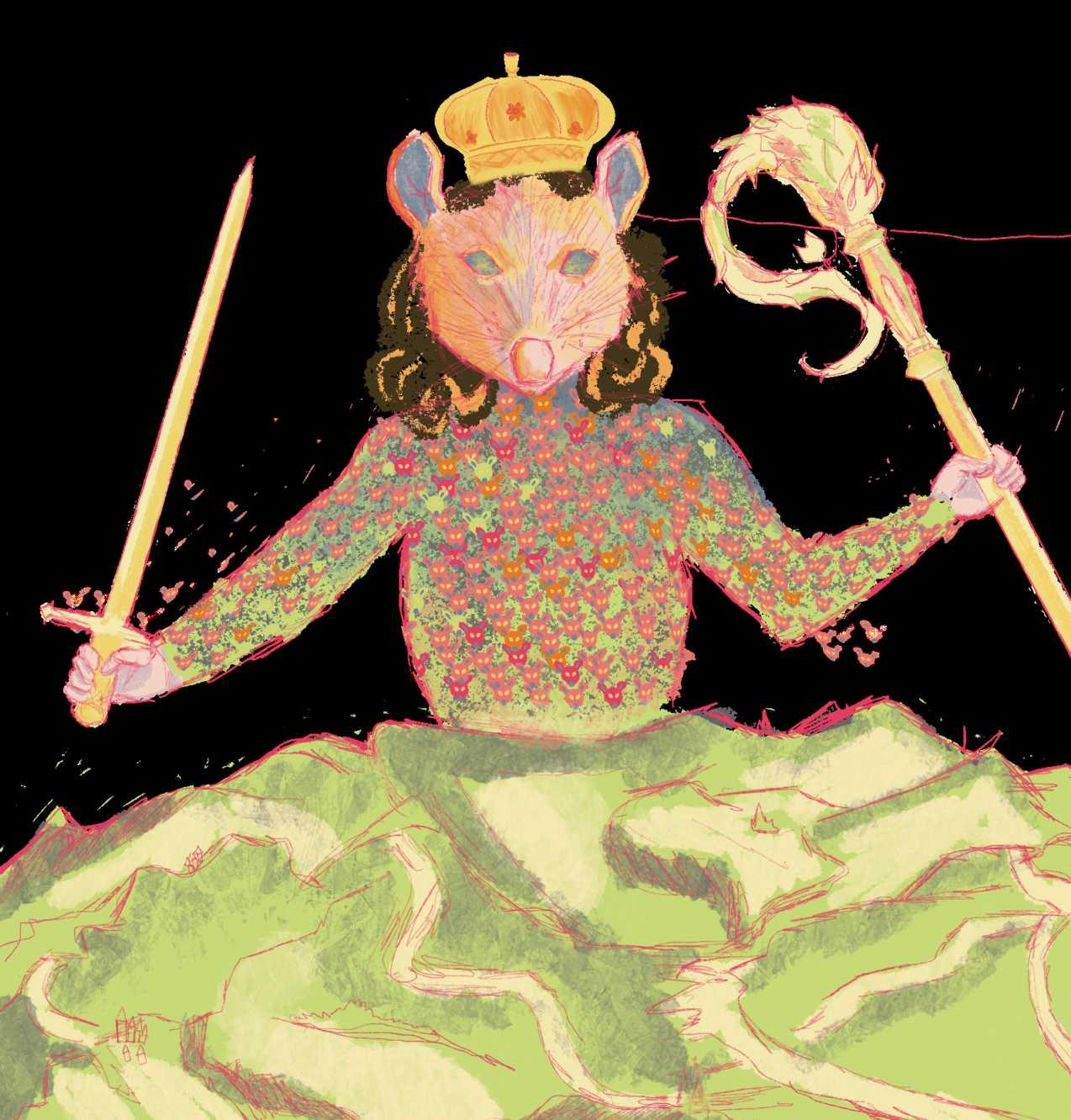
We don’t have to go it alone. The most radical thing you can do is reach out a hand, to make a connection, to live your life with love, and to open your heart to others. We can decide that this isn’t good enough — that there has to be something beyond the rat race, that we all deserve something better. adrienne marie brown describes this as a radical imagination, a visionary practice. [5] We live in a society created by the ruling class, but we have the power to imagine otherwise.
We’re shoved into the world like rats in a maze and we’re too busy pressing the pleasure button, so often at the expense of other people, to look for an exit. We don’t have to keep pressing the button. We can find our way out of the maze.

We can find our way out of the maze.

Unions, strikes, mutual aid, radical worldbuilding — these are not actions of people in isolation. They are radical acts of community care.
[1] https://courses. washington.edu/hsteu302/Hobbes%20selections%20(edited).htm [2] https://www. spareribdartmouth. com/post/revolution-through-a-woman-s-eyes-a-history-and-manifesto-of-marxist-feminism <3
[3] https://www.ncbi. nlm.nih.gov/pmc/articles/PMC3640982/ [4] https://unitedwaynca.org/blog/ vacant-homes-vs-homelessness-by-city/#:~:text=Sixteen%20million%20 homes%20currently%20 sit,thousands%20of%20 Americans%20face%20 homelessness [5] http://adriennemareebrown. net/2015/10/28/thereis-an-edge-ode-to-radicalimagination/ <3
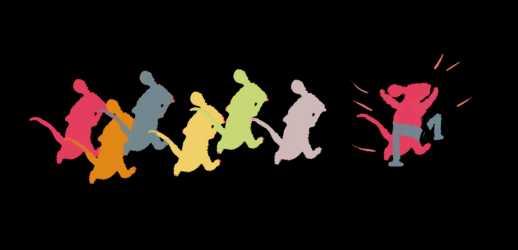
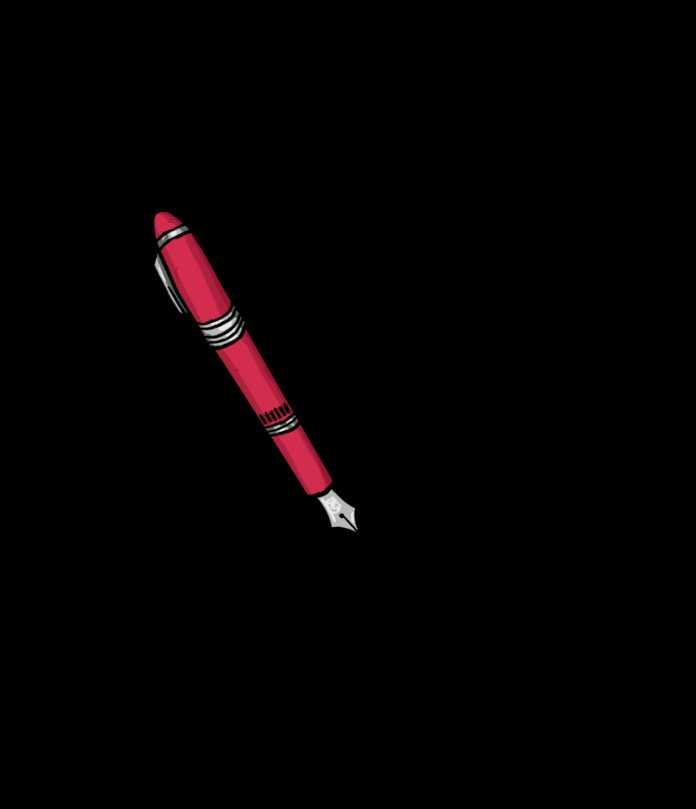
By: Rachel Roncka Art by: Kaitlyn Anderson Design by: Chloe Cordasco
Art by: Kaitlyn Anderson Design by: Chloe Cordasco
You have entered the realm of young adult — or, more fondly, YA — fantasy and science fiction.
You have entered the realm of young adult — or, more fondly, YA — fantasy and science fiction.
here is one particular corner in every bookstore that
here is one particular corner in every bookstore that
As you wander between its shelves, the once vibrant colors around you begin to darken, and the atmosphere shifts. Those browsing the wares around you appear mostly female, in their early to late teens. As a rule, no hardcover is less than 2 inches thick, and each jacket features an embossed title and some symbol — a sword, crown, maybe an especially sinister-looking flower (extra points if it’s dripping with blood) — foreshadowing a tale of adventure and suspense.
You have entered the realm of young adult — or, more fondly, YA — fantasy and science fiction. This genre marks an obligatory phase for almost any girl who claims the title of “bookworm,” and is unparalleled in its ability to transport the reader. Like most cultural phenomena associated with teenage girls (think rom-coms, pumpkin spice lattes, boy bands), YA has weathered plenty of criticism. Many are familiar with its near-comical overuse of tropes, but fewer recognize its subversion of traditional expectations for female characters and the profound impact this has on teenage girls and non-binary individuals.
The initial allure of YA lies in escapism. Those glossy covers promise refuge from the hail of awkward blunders and uncomfortable emotions that comprise female adolescence.
Haunted by the memory of a joke no one laughed at, an outfit malfunction, or rejection from your crush? Indulge in witty banter between knights dueling for their honor. Let the salty spray of the high seas wash your embarrassment away as you shadow a ruthless captain and her motley crew. Console your own heartbreak with romance that seems pure enough to transcend class division and political conspiracy, only to *spoiler alert* end in betrayal.





There is no end to the comfort YA provides. Each saga is as long and winding as the epic poetry of ancient GrecoRoman tradition, and replete with similar archetypes. Heroes with fantastical abilities. Conniving villains. Kingdoms in peril. However, contrary to the legends of old, these heroes are most often women. With an authorship and audience dominated by young women, these characters can exist free from the distortion of the male gaze. Instead of being relegated to the role of romantic interest or damsel in distress, these young women are leaders of revolutions and prophesied saviors. No other genre affords its female characters such unprecedented levels of agency and importance. Today, film and TV adaptations extend the impact of YA to the screen, changing the narrative of female strength for even wider audiences.
Critics of YA bemoan the surplus of sullen, sarcastic teenage protagonists, but there’s immense value in heroines who stray from conventional feminine ideals. Intentionally or not, many popular works attribute undue value to a woman’s physical beauty. From Dostoevsky to Disney, classic novels and films often portray women’s appearances as reflections of their virtue. We are led to subconsciously link beauty and character, and assume only conventionally attractive women can be the center of a story, in fiction and reality.
These characters can exist free from the distortion of the male gaze. These characters can exist free from the distortion of the male gaze.

For all the teenaged heroines toppling governments or fighting mystical creatures, appearance is irrelevant. For all the teenaged heroines toppling governments or fighting mystical creatures, appearance is irrelevant.
Thanks to YA authors, this is changing. For all the teenaged heroines toppling governments or fighting mystical creatures, appearance is irrelevant. Descriptive imagery is devoted to constructing vivid landscapes instead of perpetuating narrow beauty standards. Rather than objectified, beloved characters like Katniss Everdeen, Linh Cinder, and, yes, even Bella Swan are multidimensional individuals, as real as the girls pouring over every page.
I won’t defend the deficiencies of this genre. Among the complaints directed at YA is the idealization of unhealthy relationships (although not exclusive or inherent to YA), but perhaps the most prevalent issue is YA’s lack of diversity. While reflecting on the novels that were most formative in my own life, I am painfully aware that almost none of them were written by women of color. Despite their own lack of experience, several white authors make a conscious effort to conceive casts of characters that reflect the diversity of the YA audience. I can’t help but feel some gratitude to them; when so few forms of media centered mixed-race narratives, these authors gave life to complex characters with whom I could identify. Nevertheless, no amount of good intentions can suffice as real representation of authors of color on the best-selling charts, and it would be remiss not to acknowledge the trope of the mystical minority that some authors perpetuate.
I won’t defend the deficiencies of this genre. I won’t defend the deficiencies of this genre.

Readers can actively take part in this culture of reinvention. Readers can actively take part in this culture of reinvention.

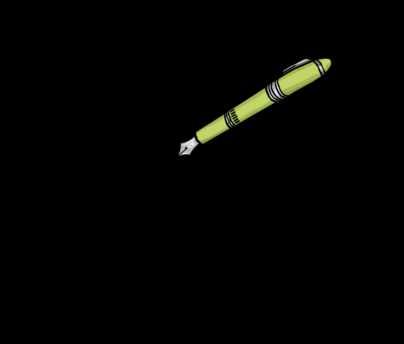



by: anne johnakin emily chang maanasi shyno caty brown & noelle blake
art by: sophie williams design by: ella grim
Anne Johnakin
Part of me hates Christmas. And my birthday. And surprises. I hate when you stare at me with expecting eyes, waiting for my reaction. I can nail down most allistic emotions, I can parrot them, perform them. But I’ve never perfected joy. Because you do it in a measured way, corners of lips upturning, a gracious “I love it!” A quick hug maybe. I do joy differently, and you’ve always hated that. Made fun of me for it. Took a step back reflexively, uncomfortable with my big, loud joy. Because when I see monkeys, I cry. When I see deer, I cry. When I eat food I love, I wiggle in my chair. When I talk about my special interests, I talk and talk and talk and you all hate that but by god, I love it.

I love when I listen to a hyper pop song 20 times in a row because it scratches my brain right. When things are the right texture in my mouth fizzy drinks and wide rice noodles and gummy candy. When I move my body in the way I want to, because it’s my body, not yours, and if I want to move my arms like airplane wings as I walk, then so fucking be it. When a truck honks as it passes us on the sidewalk (gross, noise) but me and my ADHD friend repeat it at the same time (beep beep bitch). When you say: “No, this is so interesting. Keep going!” “How’s Taylor Swift doing?” “What are you knitting now?” When you ask before you hug me but when you do it’s so tight it squeezes out every bad sensation my body has ever held.

“I believe you, Anne. I know you’re autistic, I’ve researched what that means for you, I know what accommodations to offer and what makes you shutdown so we can avoid it, and I know that you don’t always say what you mean but I don’t take it personal because I know the wires were crossed and inside your head you love me as deep as anyone ever could. I know that you’re struggling, that you need to sleep, that you need to cry and I will be there while you do all these things and when you’re done for the day we can watch Bones. Because that’s one of your special interests, and I love when you tie everything back to a specific episode and that it makes you feel less alone. I know that we are different, that I can never understand fully but I’m trying. I know autism seeps into every aspect of your life, it is you. It is your conceptions of gender, your asexuality, the way you love, your passion, your depression, your joy.”


What a gift–to induce sound, to infuse it
In breaths as you stoke life into clay
You bake a layer cake, the golden brown Wafts through doorways, lingers in the sway
Of bodies beside you, every note pulsing
Stormy waters part, you can sing
Through anything, you clap
And you know you’re happy
They tell you “you’re like music to my ears”
And every bone will remember
How you shivered with joy so strangely
In a warm honeyed embrace
Sometimes you are sick of it all
And every song is flat and grey
But then a channel opens, whistling sparking burning
Pounds like your feet up the hill, screams into the day

Like the setting sun for an instant before its retreat
Again your world is enveloped in a shadow
But the channel remains, open to the air
A conduit to breath through Melodies saved and patted into your pocket
Lullabies tucked into a blanket of stars
Tiding you over until dawn
by: Emily Chang
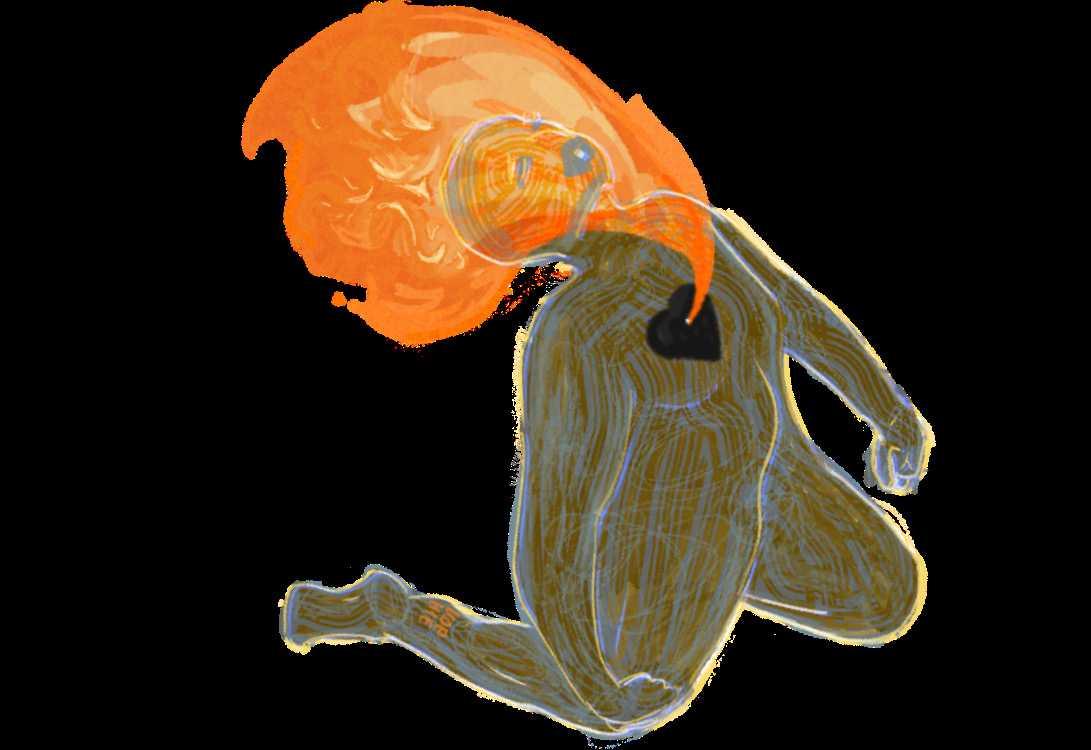

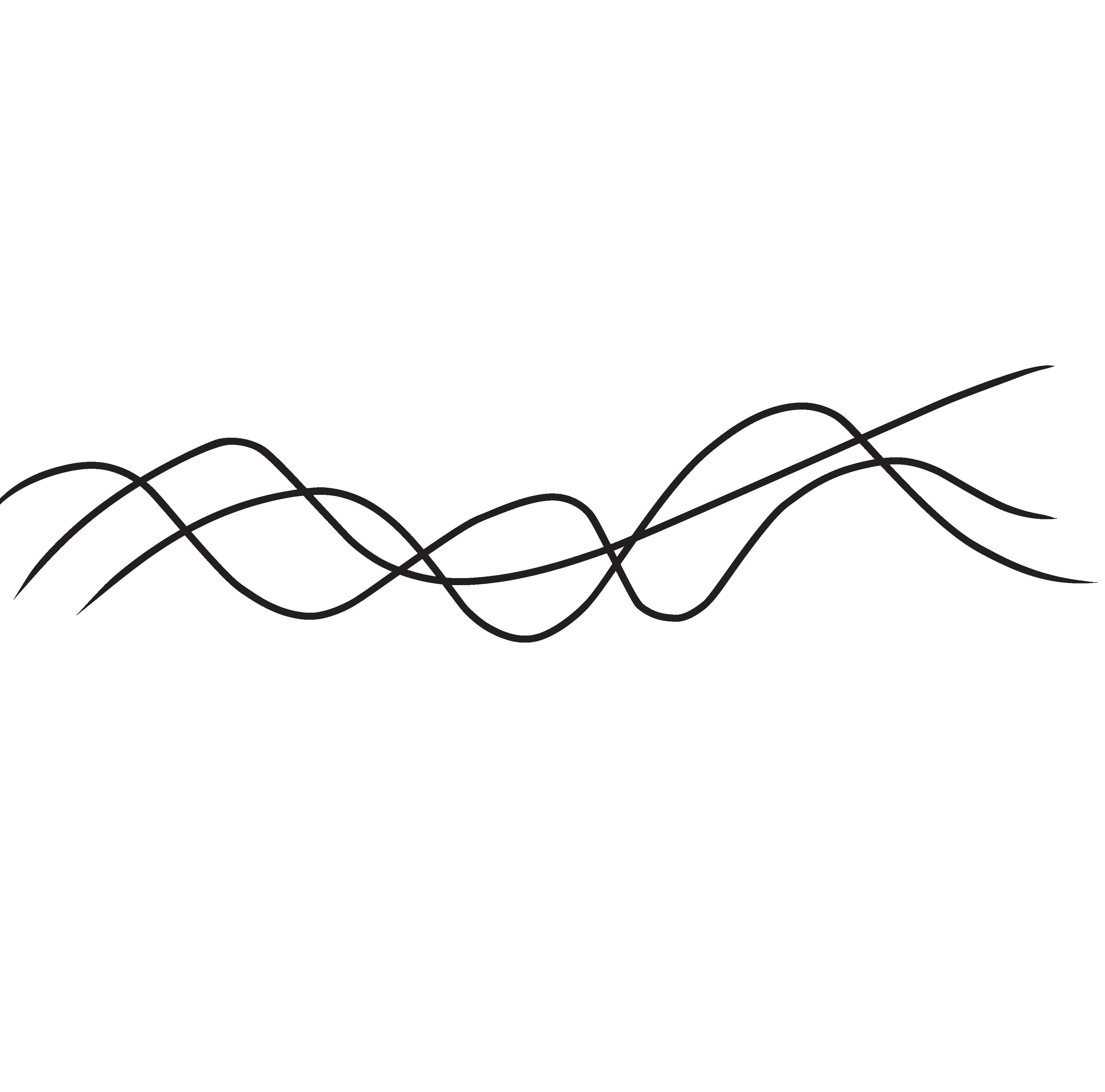


by: Caty Brown

“When you’ve spent all day wading through the swamp of your own inadequacies, there’s no absolution like spaghetti dripping in pepper and cheese.”
Jia Tolentino, bon appétit
“A bag of chips is a way to defeat time. It brings temporary infinity: a feeling that it will
“Aside from the fact that they say it’s unhealthy, my fat ain’t never been no trouble. Mens always have loved me. My kids ain’t never complained.”
Alice Walker, You Can’t Keep a Good Woman Down: Short Stories
“When their talk rolls around to calories and their moral obligation to hate themselves, I typically spread out as wide as I can. I can expand like a jellyfish; it is a particular advantage of the very fat. I conform to the shape of my container like a water balloon. Displaying maximum width, I’ll eat anything I can get my hands on while they talk”
Meg Elison, Big Girl
I refuse to be unhappy about the only body I will ever have. If no one will love my jiggling arms, my soft jaw, my enormous ass, my hanging stomach, then I sure as hell will. I will eat the whole world if I must, experience its joys, feel its weight within me. I’m here to tell all the little girls just like me out there that “Good girls can get fat.” Live large, you fat girl, you.
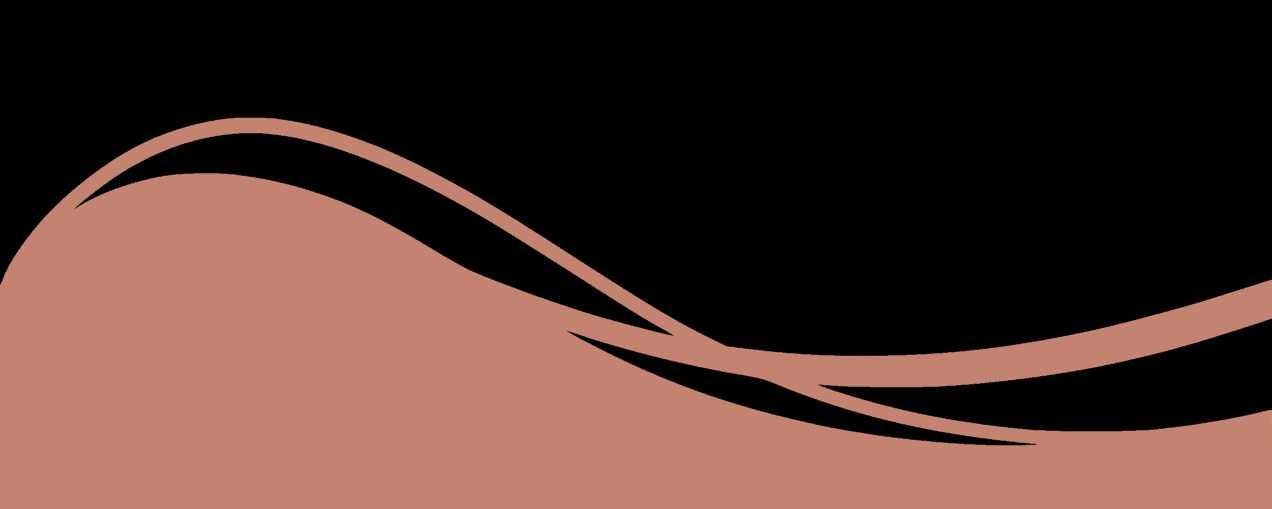


Where do folks get the energy to be so upset at my body? Where do they find the time? Are you going to hate me for being poor? For being addicted to sugar from the first meal I ever had? For existing in a world where health is reserved for a privileged few? I don’t really care. At the end of the day, I’m gonna come home to myself. I’m not going to spend my time hating myself for my stretch marks or out-grown jeans. Forgive me, body, for the years I did. I want to be your friend, every pound of you, every inch. I will feel the same joy for my fat body that I would feel for my thin body. It is mine, and that’s all it needs to be for me to love it.
xoxo - my beautiful fat ass

by: Maanasi Shyno
A killjoy is someone who gets in the way of other people’s happiness. Historically this word has been used against feminists to decry us as causing misery. “Why can’t you take a joke?” he asks us as he jokes about the intellectual inferiority of immigrants and the promiscuity of Black and Asian women.
The feminist killjoy frowns. She rolls her eyes and begins to break down the joke to its racist, sexist, homophobic core. She says “How is that funny?” and engages in the inconvenient “I’m not a bigot!!” conversation that ensues. They use words that make people flinch — sexism, racism, homophobia, transphobia, classism. Patriarchy, white supremacy, Western imperialism. Being a feminist killjoy is exhausting work.
The feminist killjoy is disliked because she disrupts the situation. They are disliked because they critique the happiness of situations that are considered comfortable. They question social norms, they hold them up to the light and ask “who is made uncomfortable here for your comfort?” They ask “is this really necessary?” In pointing out that there is a problem, the feminist killjoy comes, somehow, to own that problem as if they have created it by naming it. And then she is criticized for being all angles, for being sharp and edged, for bursting the bubble. A feminist is a killjoy because she points things out and gets in the way.
When telling other ribbers about this tribute to Sara Ahmed,1 many were unfamiliar with the phrase feminist killjoy. These days, feminists are more likely to be called social justice warriors (sjws).
While linked, these terms denote different things. The sjw rails against systems of oppression and possesses a crazed commitment to speaking up, to declaring war. The feminist killjoy is a bitch. They are a debbie downer. She is unamused, she says “That’s not fucking funny, Robert” and “For the love of god read a book, Jared” They are there to say fuck your joy. The feminist killjoy is specifically a joy killer. She takes up unhappiness and is willing to cause it. If there’s one constant, heirloom situation experienced by every iteration of this movement, it’s the attempted assassination of the feminist. The characterization of feminists as ugly, sexless creatures, angry beyond measure. To call a feminist unfuckable is an attempt to make her small, to deem her irrelevant, to somehow delegitimize her by metrics she has completely rejected. By nature, the sjw, the killjoy, and every iteration is an attempt to attack feminists. Anyways, are we really causing unhappiness? Or are we simply exposing the unhappy, harmful truths ever-present, tucked under socially accepted ideas of joy? To kill joy is not at its core an act of murder — it is one of exposure, of painting a target on disguised harm. But in exposure, in disruption, something is still killed: fantasy, complacency, ease.
We must be unhappy with this world. We must cause the world trouble through our feminism. We must reject attempts at assimilation into an unjust society. We must cause misery. We must seek destruction as a creative force. If to kill joy is to speak up and talk back, if to be a killjoy is a commitment to doing so, then killing joy is a commitment to redefining joy. Is then, that redefined joy, something we killjoys are simply working towards? I’m not sure. When I’m with other killjoys, there is already some intimate, undescribed sensation of an alternative joy. There is a knowing, an understanding, a humor all its own. It is a radical potential, a comfort, a happiness, a killjoy joy. When my killjoy shoulder brushes against yours, I’m suddenly aware of your words. They hum, reverberated through a killjoy crowd. We move forward, in unison, laughing and chatting. We squeeze onto a couch in the corner of a coffee shop, lay side by side on the grass and soak in the sun. We talk by candle light and scribble angry diagrams on notebooks and paint in silence while drinking wine. We pick each other up and dust each other off, we cook each other pasta and play with our dogs. We write poetry and share it, we read poetry and smile. We struggle and struggle and keep coming back for more. We create space to create, to love deeply and desperately. This is the sort of happiness we hope to establish everywhere. This is our dream, and living in it now is a killjoy practice. This is a joy we have excavated from a challenging world, a joy we have birthed. This is killjoy joy.
“We must be unhappy with this world. We must cause the world trouble through our feminism. We must reject attempts at assimilation into an unjust society. We must cause misery. We must seek destruction as a creative force.”
[1]Ahmed, Sara. “Feminist Killjoys (And Other Willful Subjects).”
The Scholar & Feminist Online. Accessed May 24, 2023. http:// sfonline.barnard.edu/polyphonic/ print_ahmed.htm.


by: Noelle Blake
For the longest time, I didn’t understand when people said, “It’s the little things.”

When I thought of joy, I thought big.
Joy was the last day of 2nd grade. Joy was the beaker-shaped cake at my science-themed birthday party. Joy was sweet victory after conquering the scariest roller coaster of my life. Joy was finally hearing my Dad tell me that I did well without any qualifiers to humble me. I think when I was younger, I needed those big joys. Back then, all my feelings were big. I didn’t understand little joys, because I didn’t know that feeling doesn’t have to consume you, eat you alive. My joy was big, but so was my sadness, and my anger. Too big for little me’s body.
I get it now. My feelings aren’t any less big; I just grew into them, the way you do hand-me-downs. My feelings were big because there were so many things that I had yet to understand: why I lived differently than people around me; why people judged me for things I couldn’t control. The answers lay in my race (it’s crazy that that concept still means something), my age (my naïvety, my maturity, my mini-adulthood that was placed upon my little shoulders before i even knew what it meant to be young), my sexuality (not that it matters, anyway), my family (let’s not unpack that), their income (which burdened me more than it should have, by the way), my school (hated that place from kindergarten to senior year!), and other things that hurt my head and produce big big feelings, even now. I don’t think I was wrong to feel that way. In fact, I think it’s reasonable, given the circumstances.
I’ve grown up and into my feelings. I grew into understanding that joy is power. I win when I feel joy in a place designed to make me feel anything but.

Joy is going on walks to my favorite songs. Joy is finishing my homework before 11pm. Joy is whispering an inside joke in my friend’s ear. Joy is getting coffee with the girl I like. Joy is watching reality TV with my roommate before bed. Joy is adding another book to my StoryGraph, even if I don’t like the book. Joy is my favorite perfume. Joy is falling asleep on the Green in the sun. Joy is waving ‘hi’ to a friend in passing. Joy is being present. Joy is being alive. Little joys for little people with not-so-little power.
It may be a small win, but hey! It’s the little things.




Whether you're a writer, artist, designer, or just want to hang out, we want you in our community! Open to folks of all genders and backgrounds!



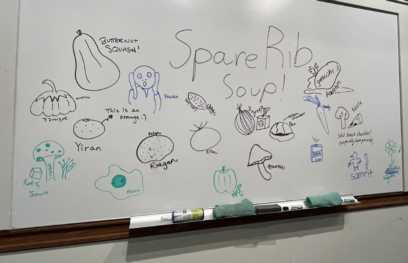

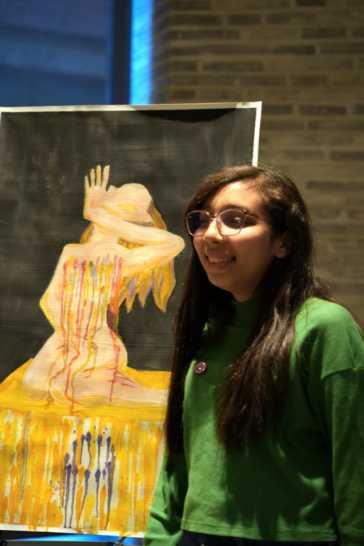



There are many ways you can get involved:
-Writing an article
-Creating a personality quiz or a crossword puzzle!
-Creating art to accompany an article
-Creating standalone pieces of art (digital, photography, traditional, etc.)
- Working with Adobe InDesign to create the layout for an article
-Creating art for the cover-Working on our social media
-Working on meeting logistics and planning event
-Developing our community and presence on campus
-Working on special projects of your choosing
-Helping to guide future interest in Spare Rib Or just coming to meetings to make new friends!

We create a magazine each term, focused on a theme (like this edition’s theme, JOY). You can be as involved as you can each term. Our space is always open to all! Slack is our most used form of communication, and we use it both as a workspace and social space. If you’re interested in joining, contact us at spareribdartmouth@gmail.com or spare.rib@dartmouth.edu!
Together, every term, we make a zine. That itself is a revolutionary act of care. Last term we kept doing that. But more important, and more revolutionary, we make community. We make a radically joyful community, or we try. We always try. We keep trying. Because, after all, as our 23’s and intersectional feminist literature have taught us, the magazine is the method. <3
There is so much care in these pages. But it’s not just on the page, or in Slack, Google Drive, InDesign, etc. (Though it is certainly evident in those places.)
We give care, maybe the most difficult kind of labor, everywhere in this community, because we need to; because we have to, for each other — for ourselves; because giving is a practice like breathing. Of course, you have to make sure you don’t run out of air.
At this institution, you all make it easier to breathe. So thank you. Thank you for all the work. But even more vital, thank you for the joy. It is sustaining, and it is so, so necessary.
Those of you who have graduated, thank you. Ridiculously, thank you. You got this. Those of you who haven’t, thank you. Absurdly. Like, absurdly. You also got this. We got this. <3
Thank you, Spare Rib.

Love, Caty Brown, Aryma Moore, and Chloe Cordasco, 23X Design Leads
<3
Akshee Chopra ’26 — art
Anika Larson ’26 — writing, audio editing
Anne Johnakin ’23 — writing, editing
Aryma Moore ‘25 — design
Camille Yang ’25 — art
Caty Brown ’23 — writing, design, cover design
Chloe Cordasco ’24 — writing, design
Diana Tapia ’25 — writing
Eda Naz Gokdemir ’25 — writing, editing
Elaine Mei ’23 — editing
Ella Grim ’25 — writing, design, editing
Emily Chang ’25 — writing, design
Grace Hillery ’25 — writing
Idil Sahin ’26 — art
Ivie Aiwuyo ’26 — writing
Jamylle Gomes ’26 — art, design
Joyce Li ’26 — writing
Kaitlyn Anderson ’24 — art, design
Katherine Arrington ’24 — design, editing
Maanasi Shyno ’23 — writing, art, design, editing
Milanne Berg ’24 — art, design
Naya Lunney ’25 — writing
Noelle Blake ’26 — writing, design, editing
Rachel Roncka ’26 — writing
Raegan Boettcher ’24 — writing, design, art, editing, cover art
Samantha Paisley ’25 — art
Samrit Mathur ’23 — writing
Sarah Berman ’25 — art
Shena Han ’25 — art, design
Sophie Williams ’23 — art, editing
Tiffany Chang ’24 — writing
Yawen Xue ’26 — art, design
YaYing Yu ’26 — art



